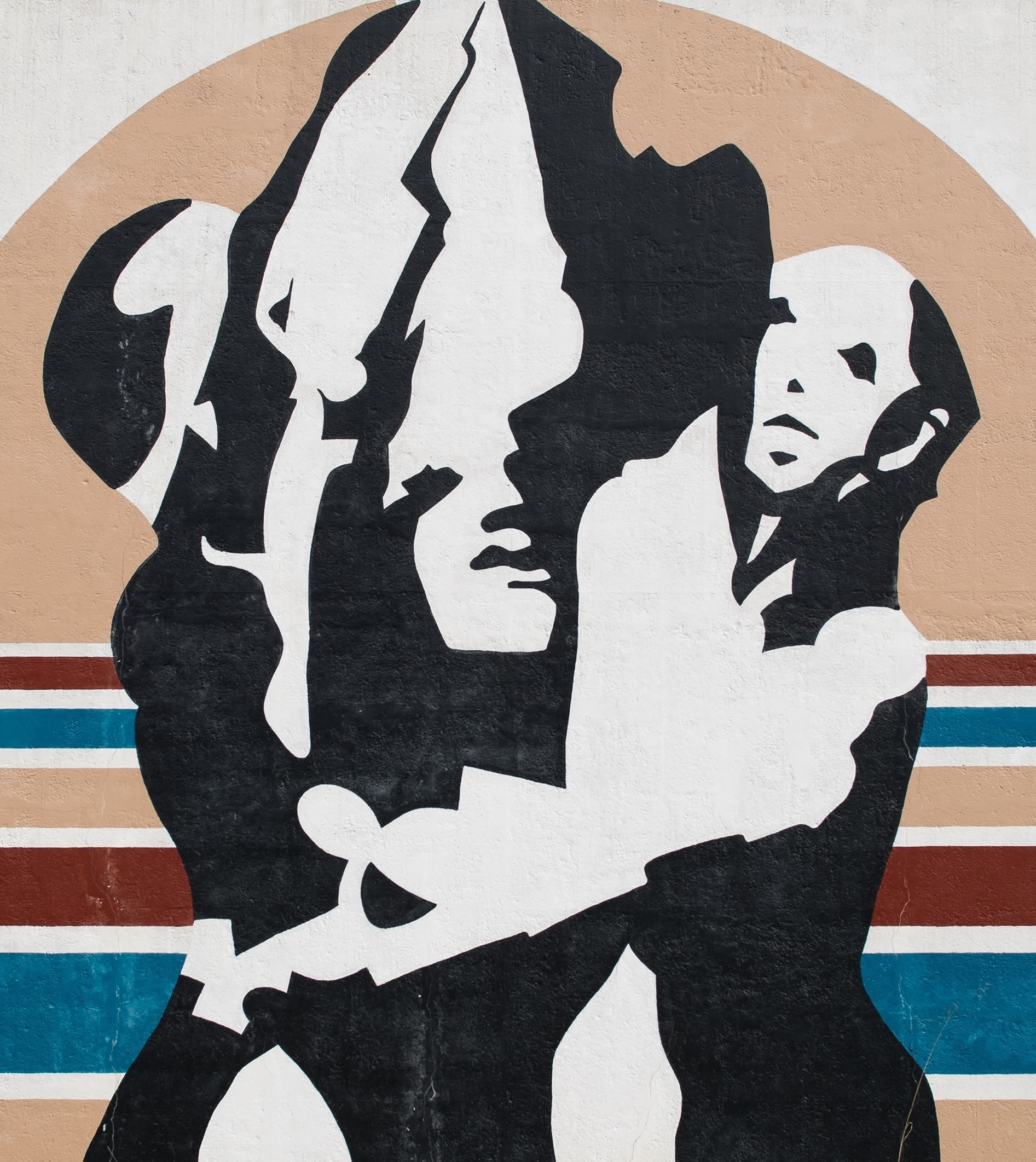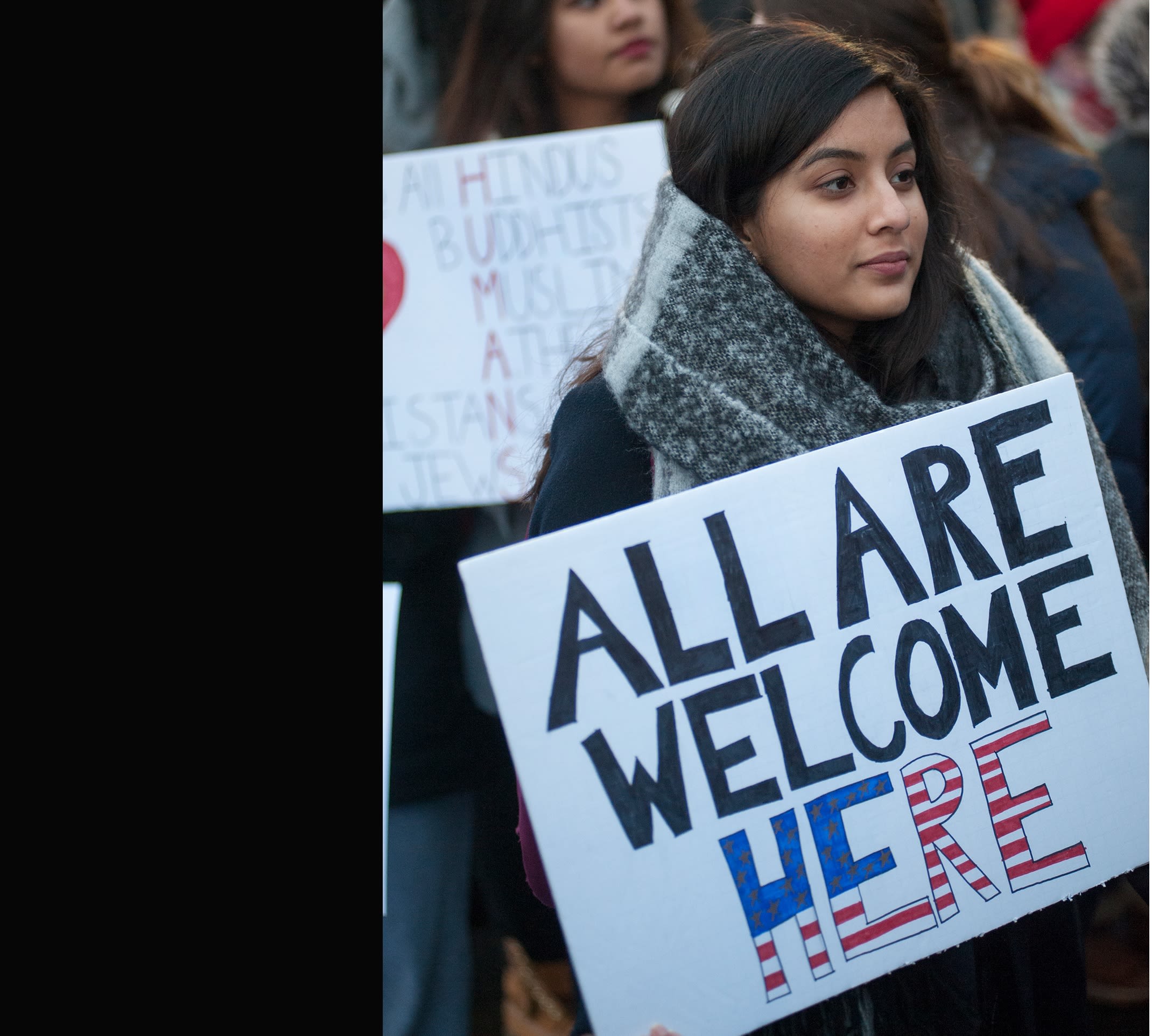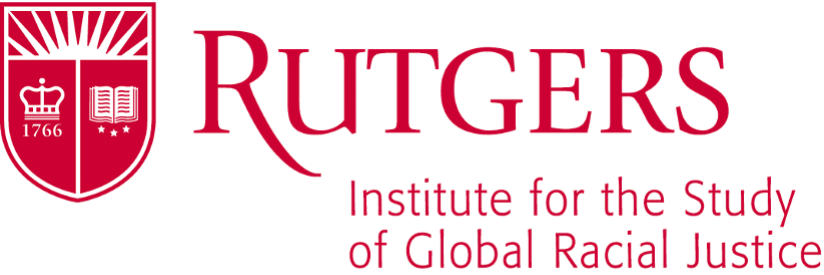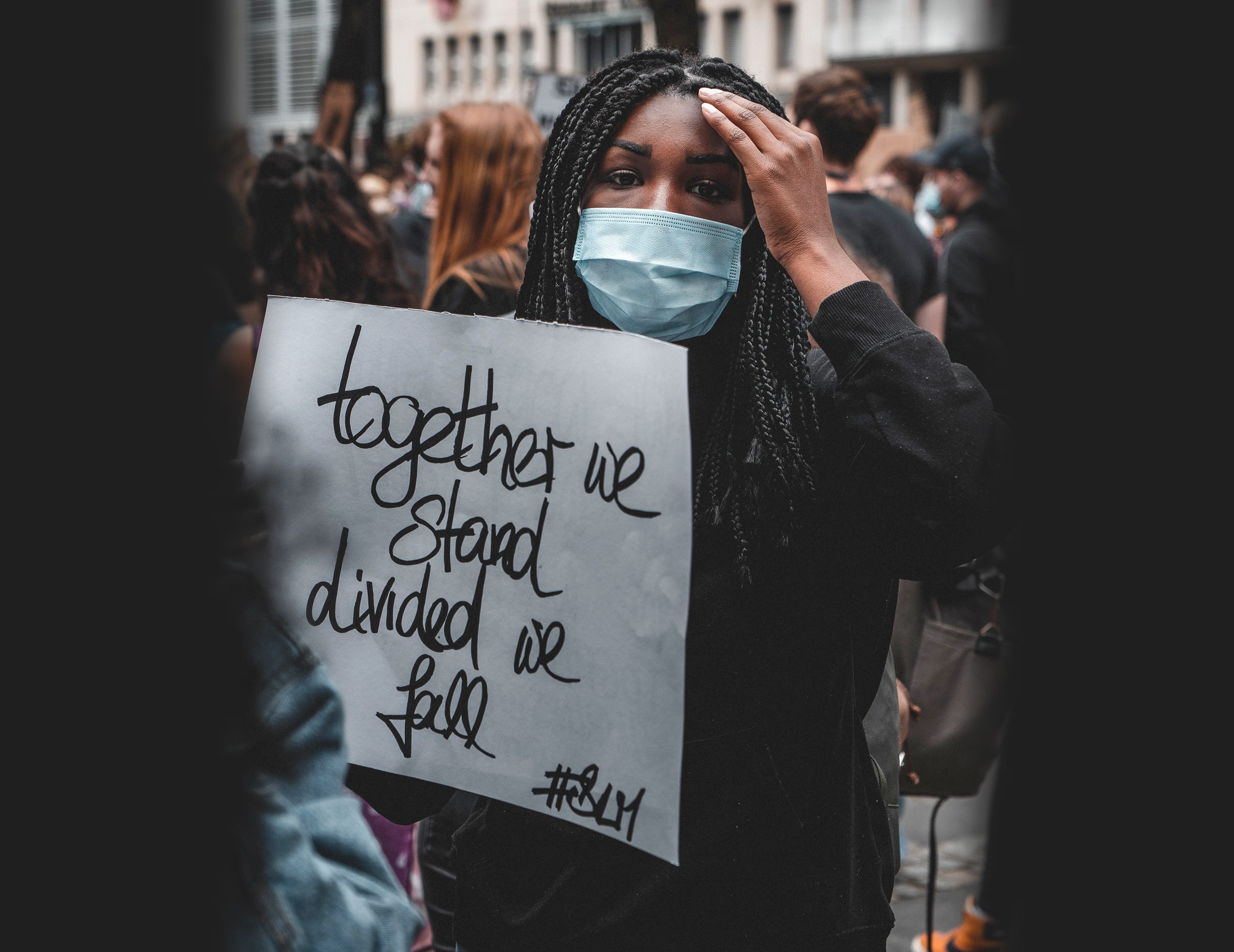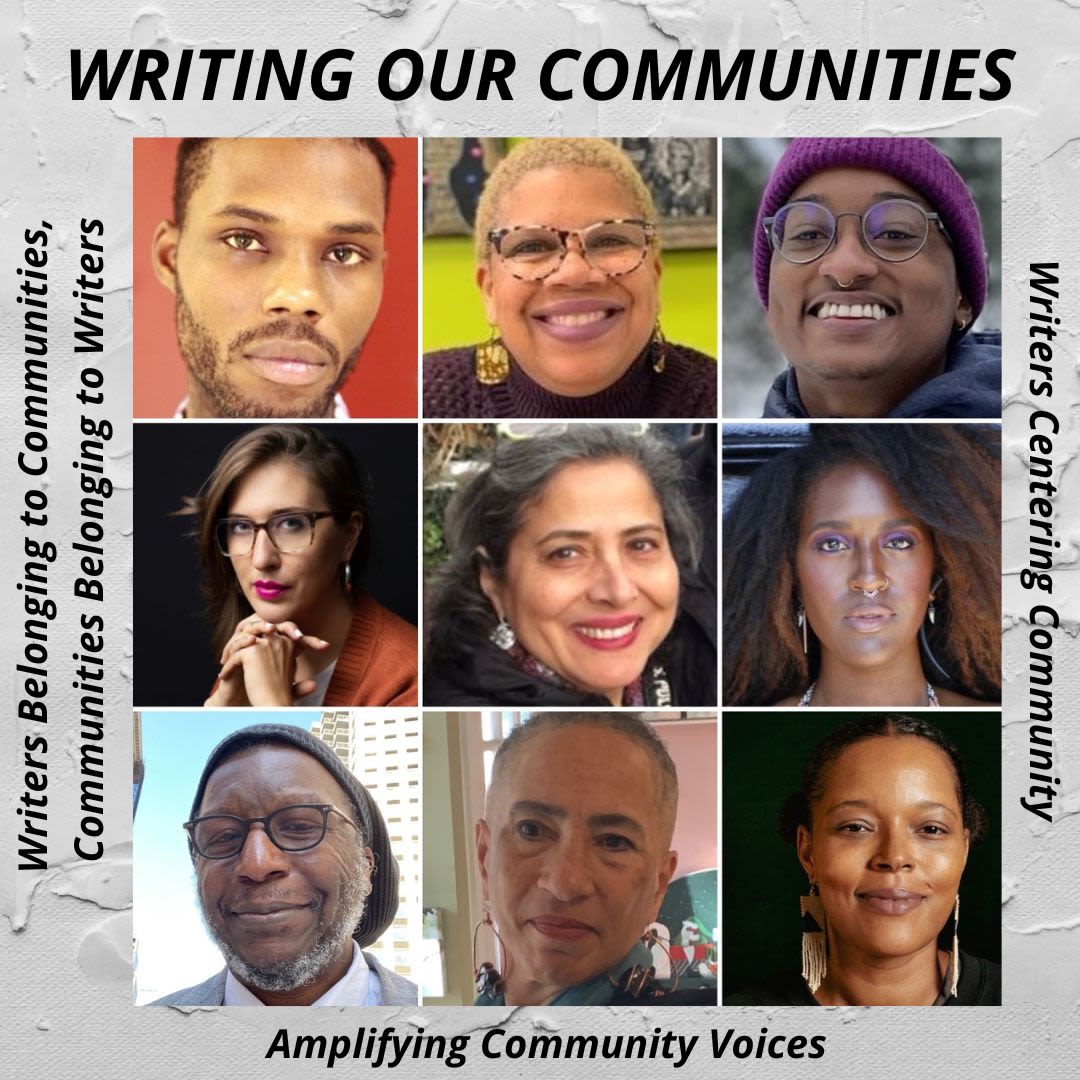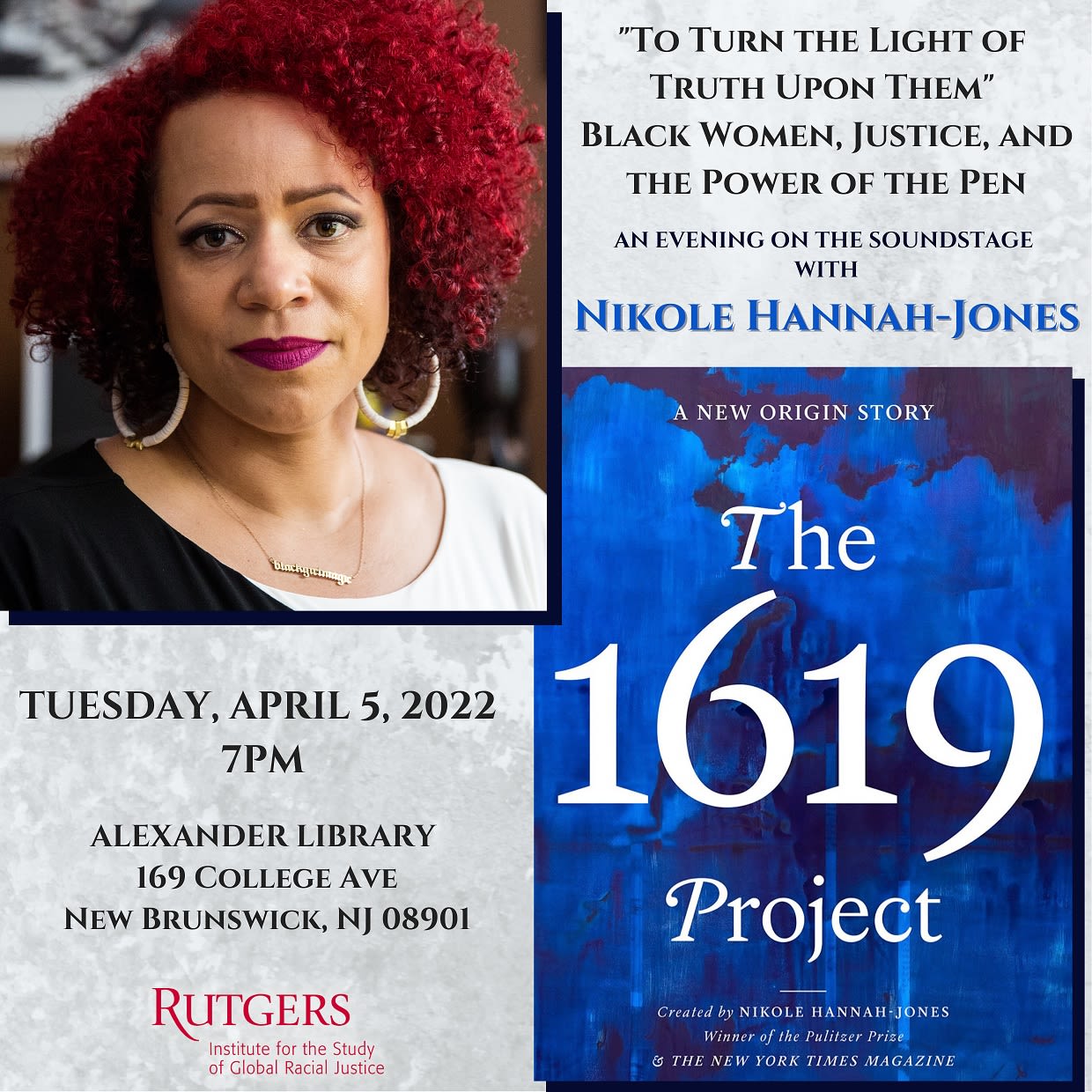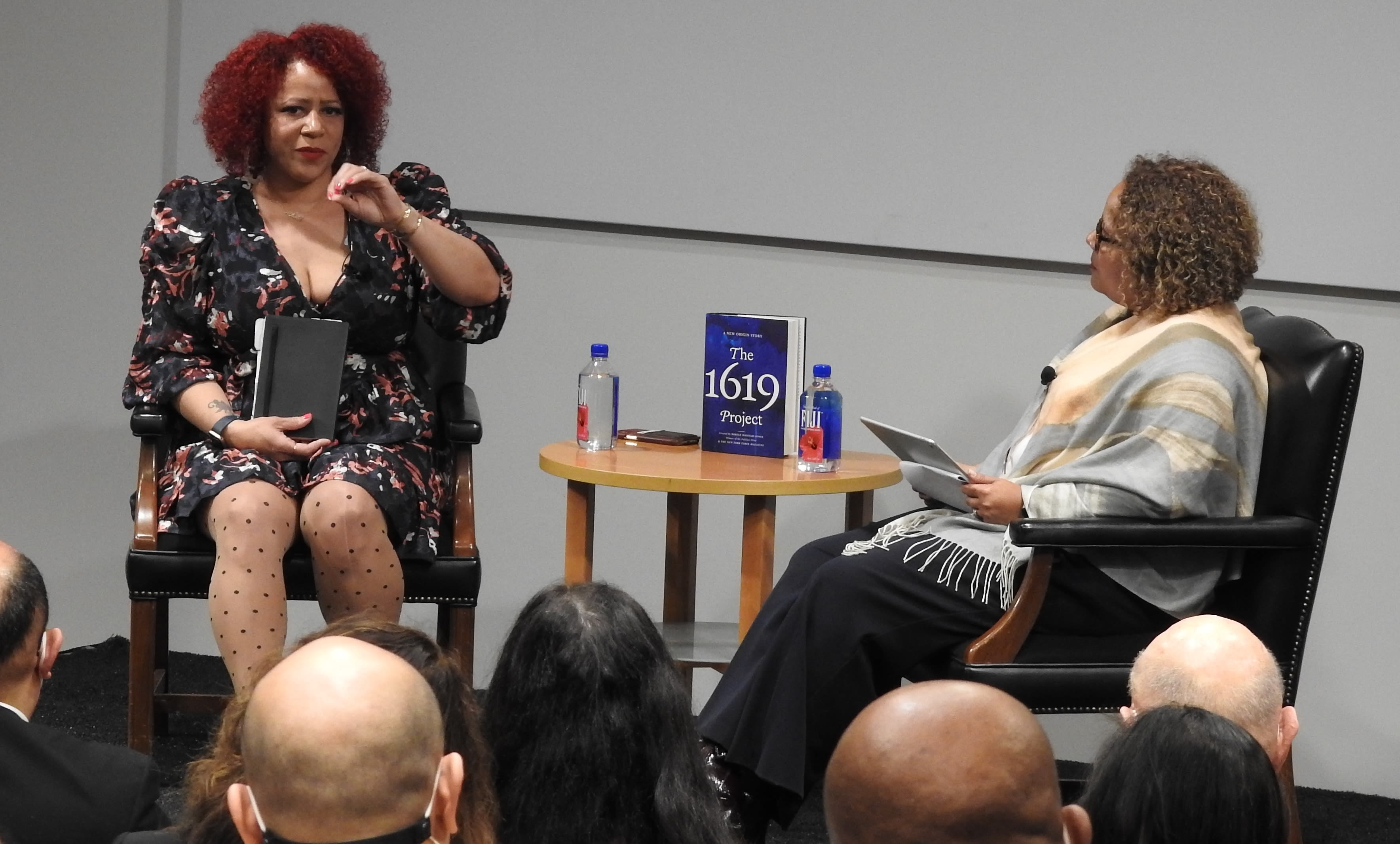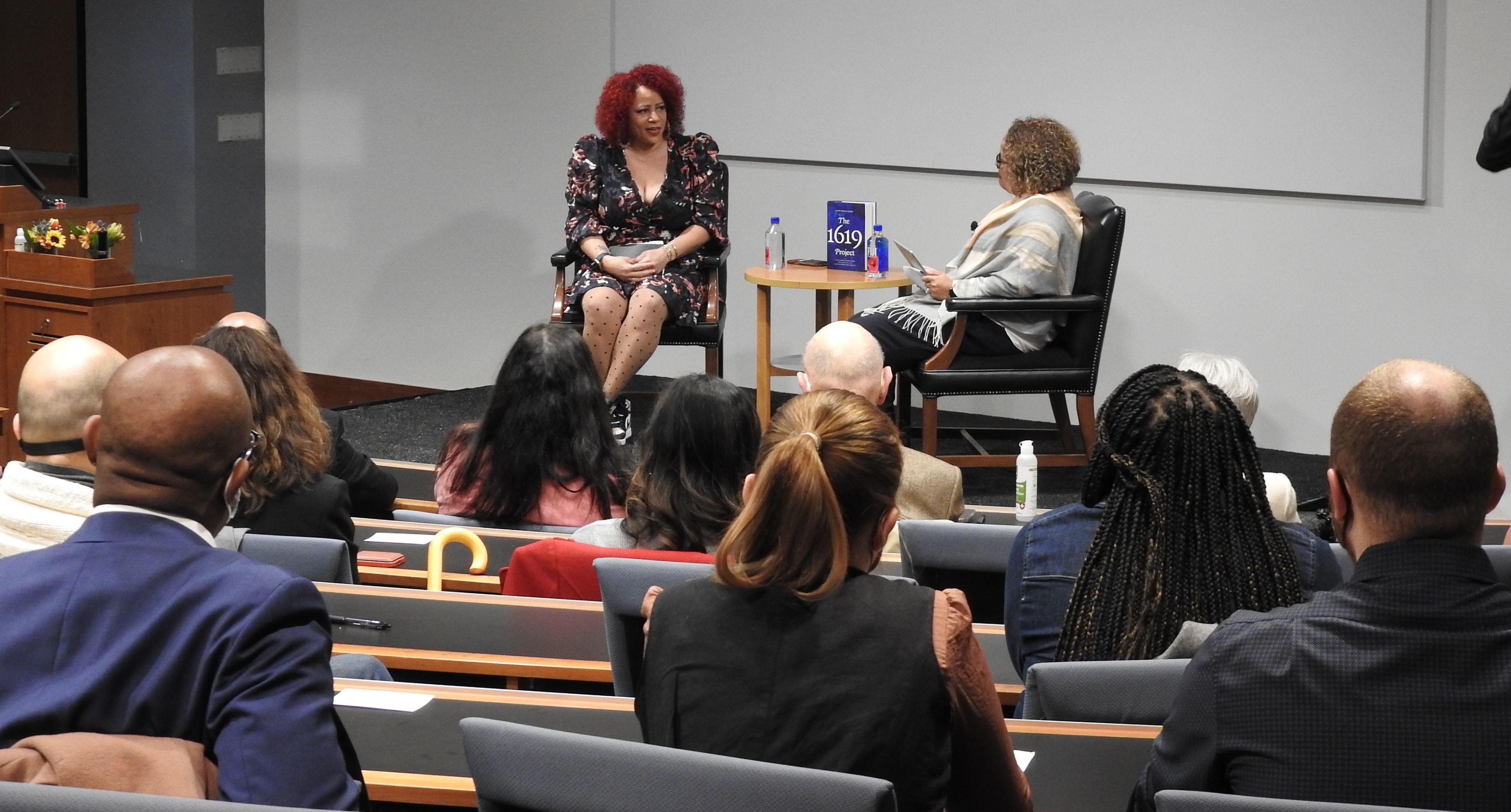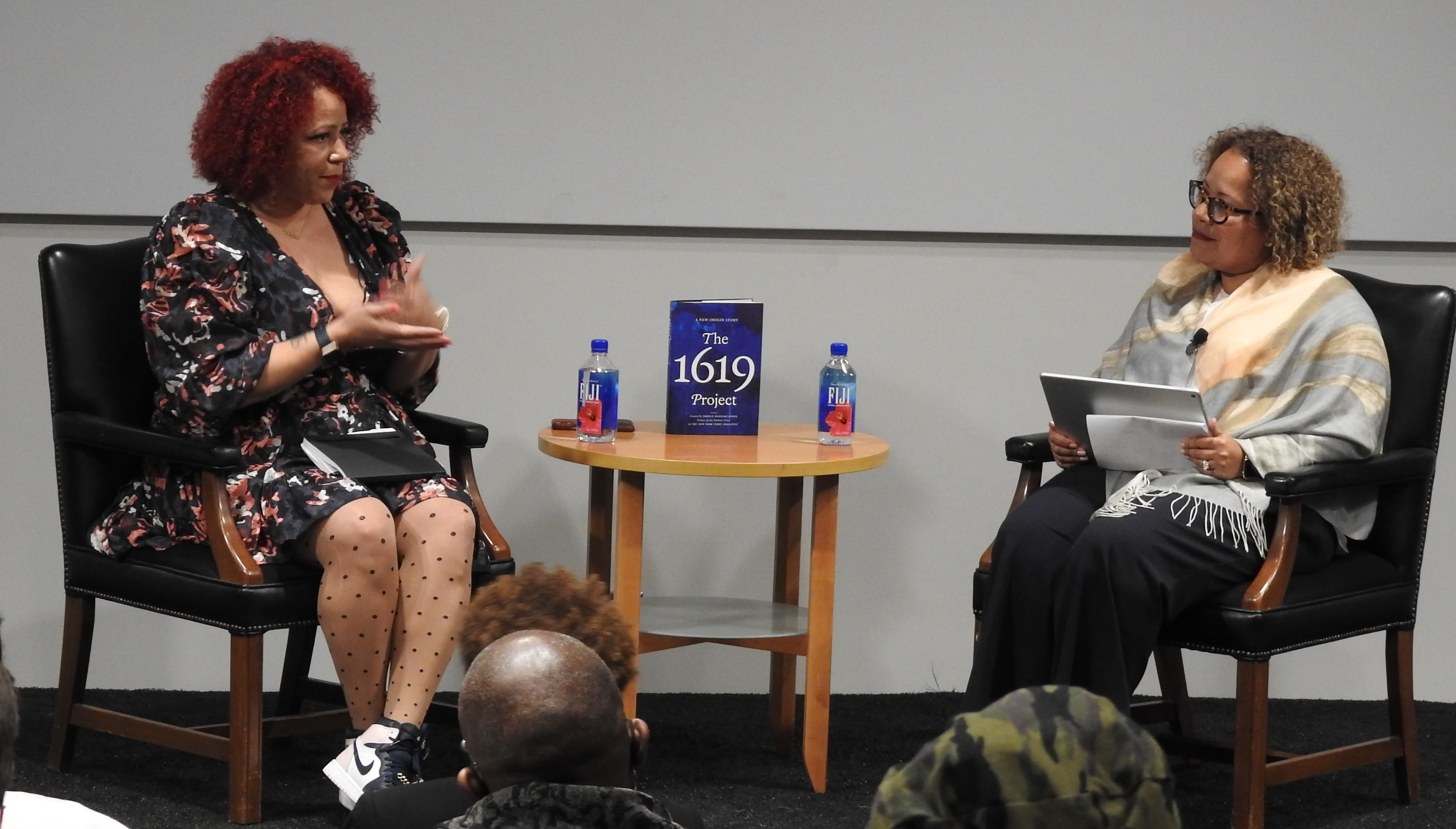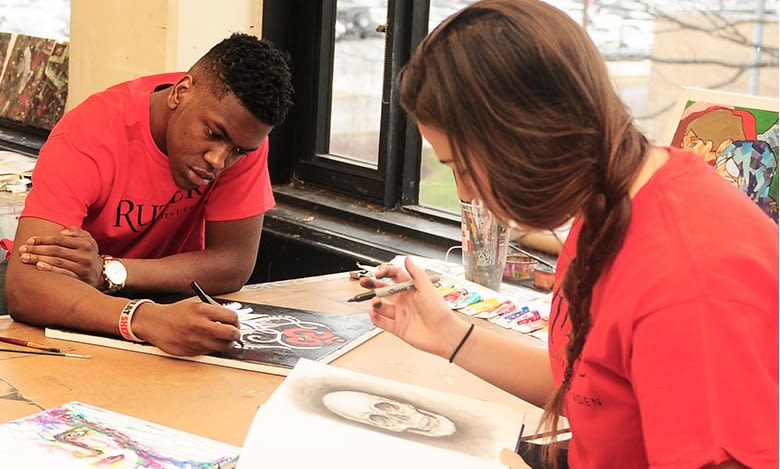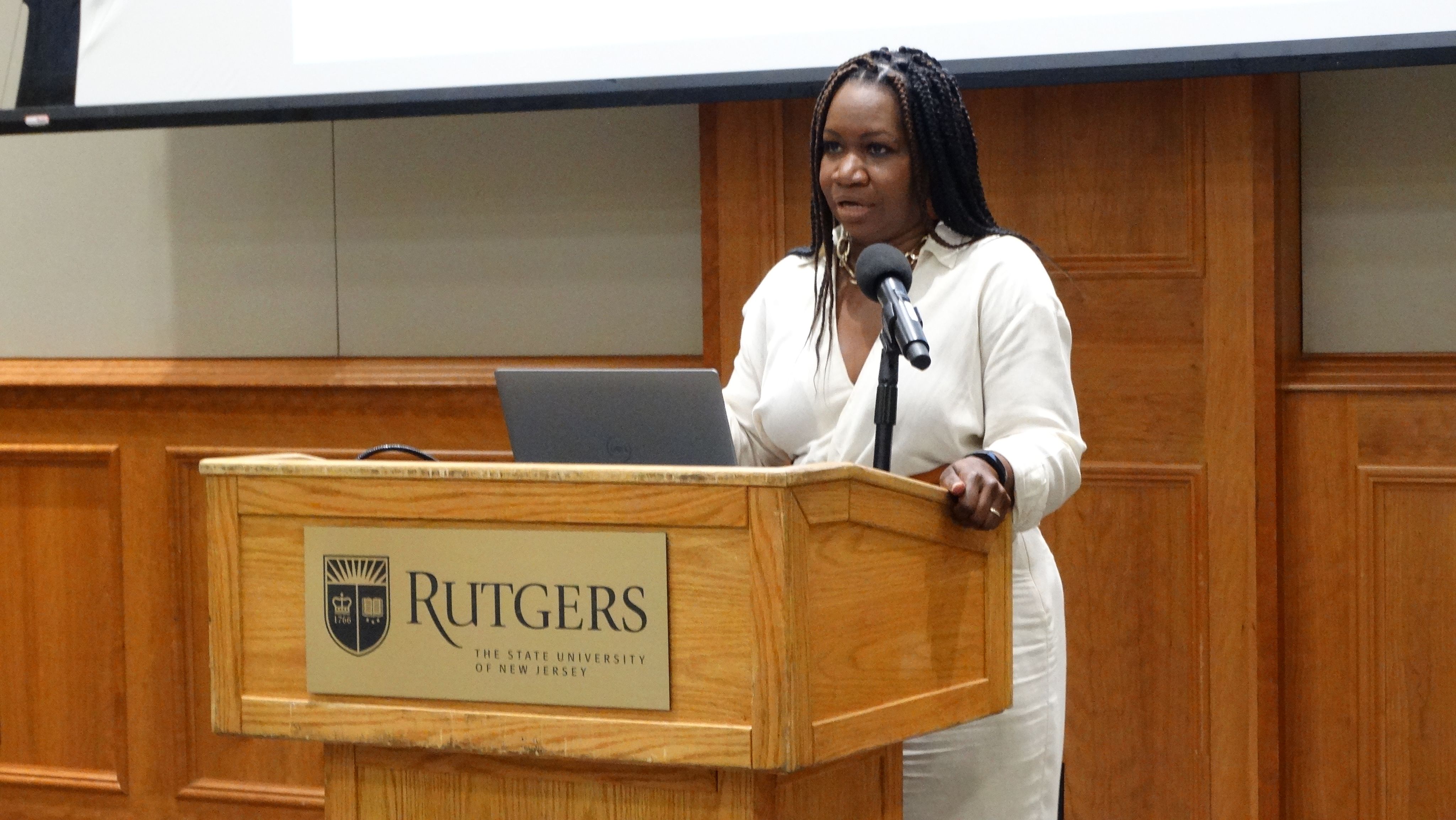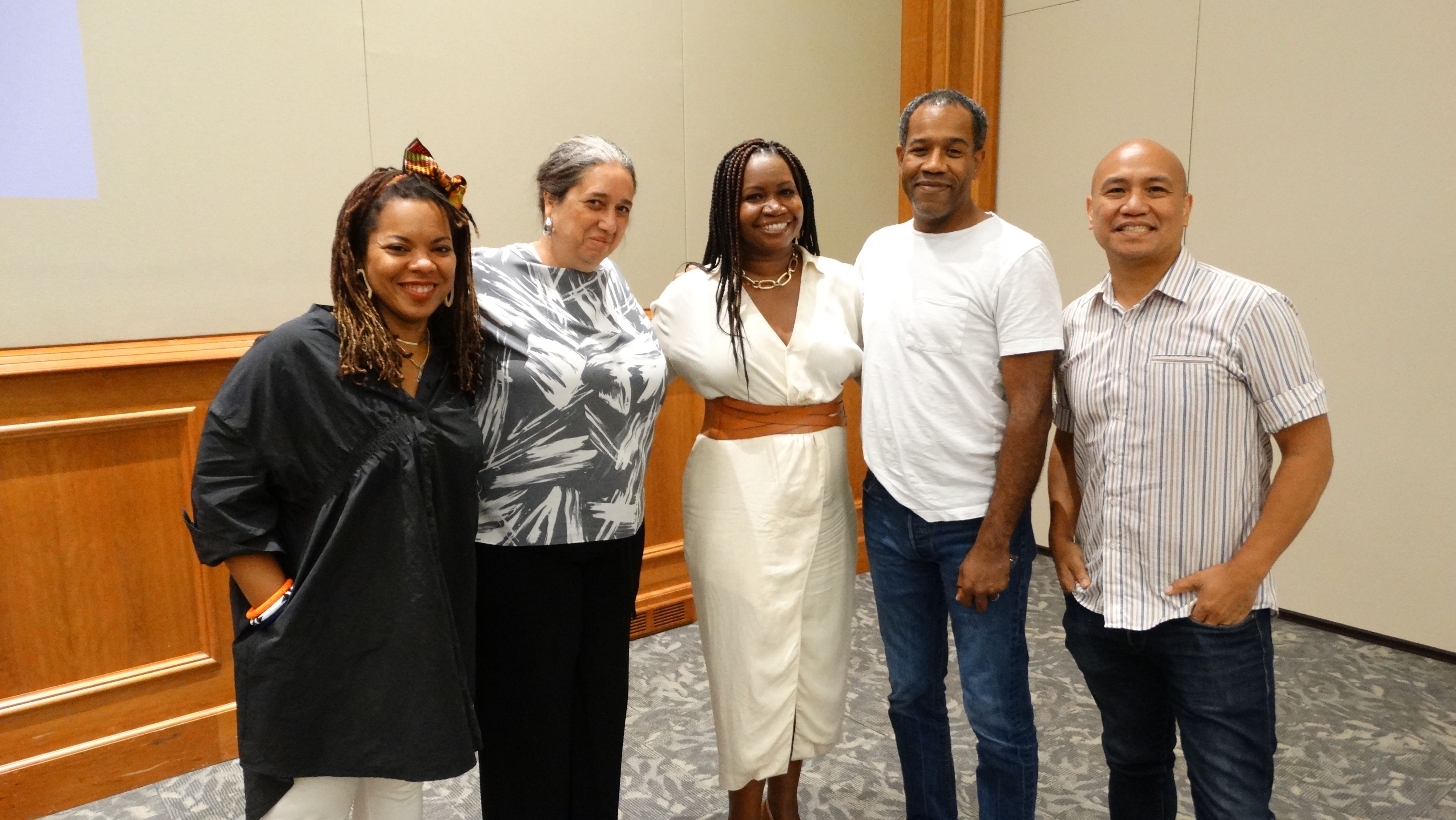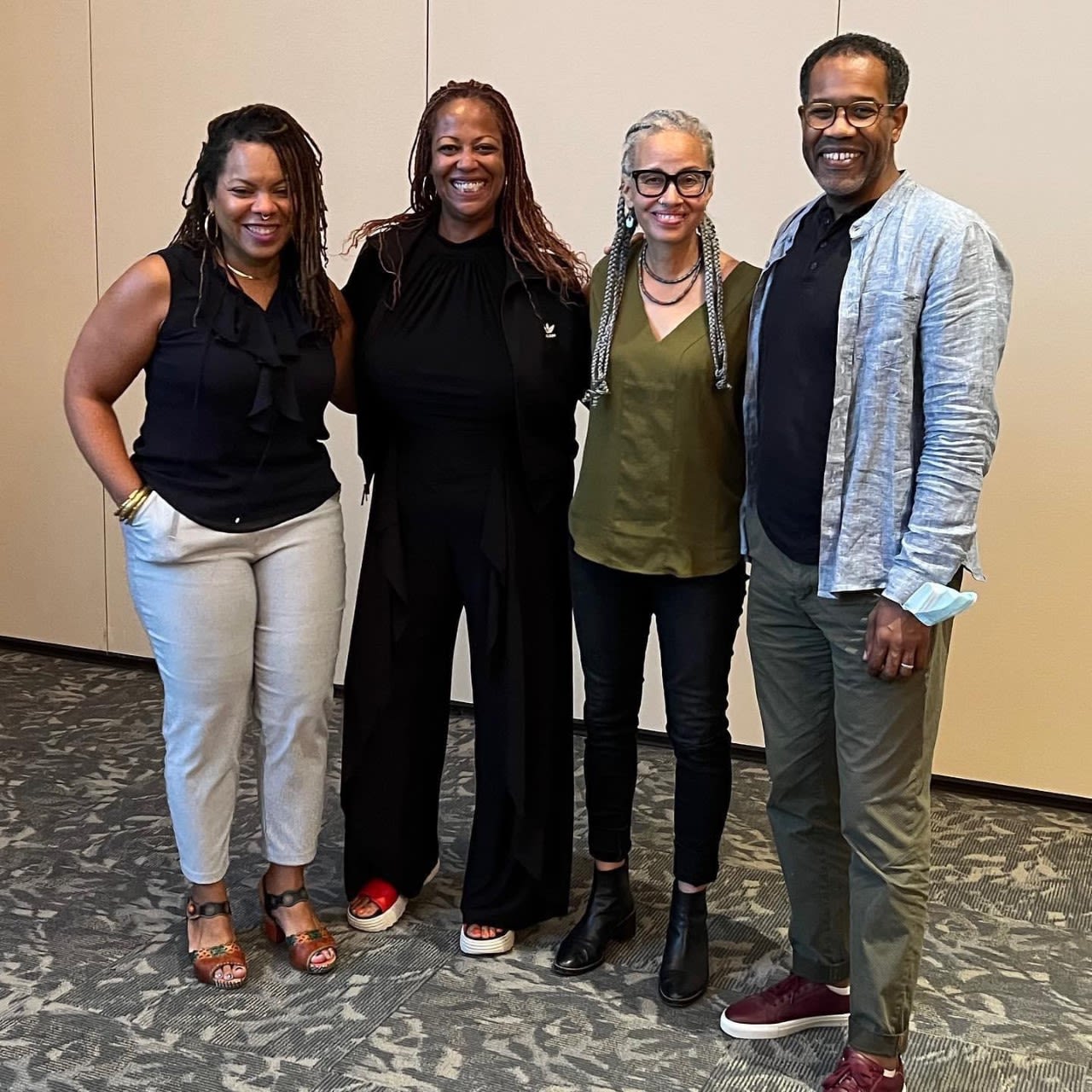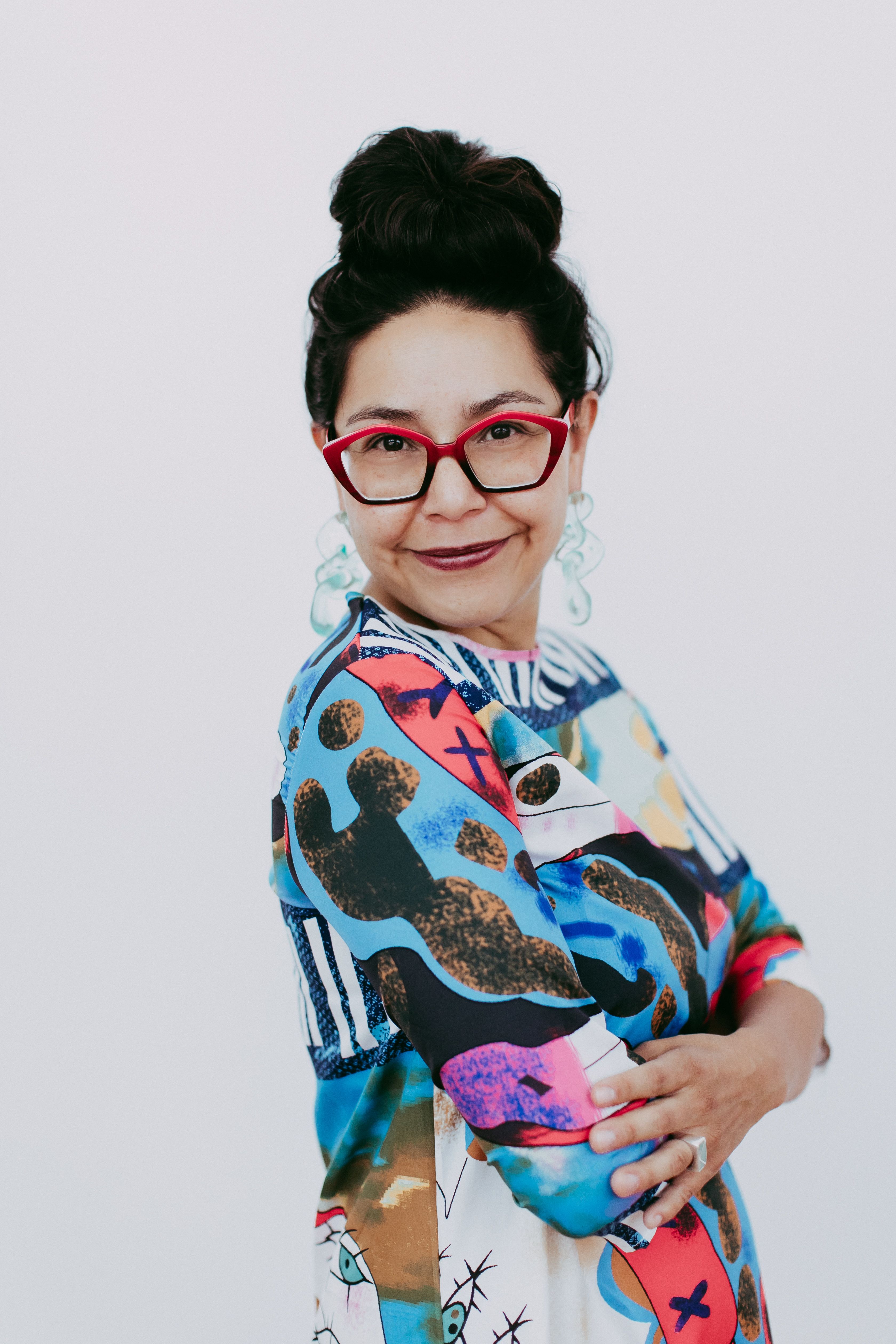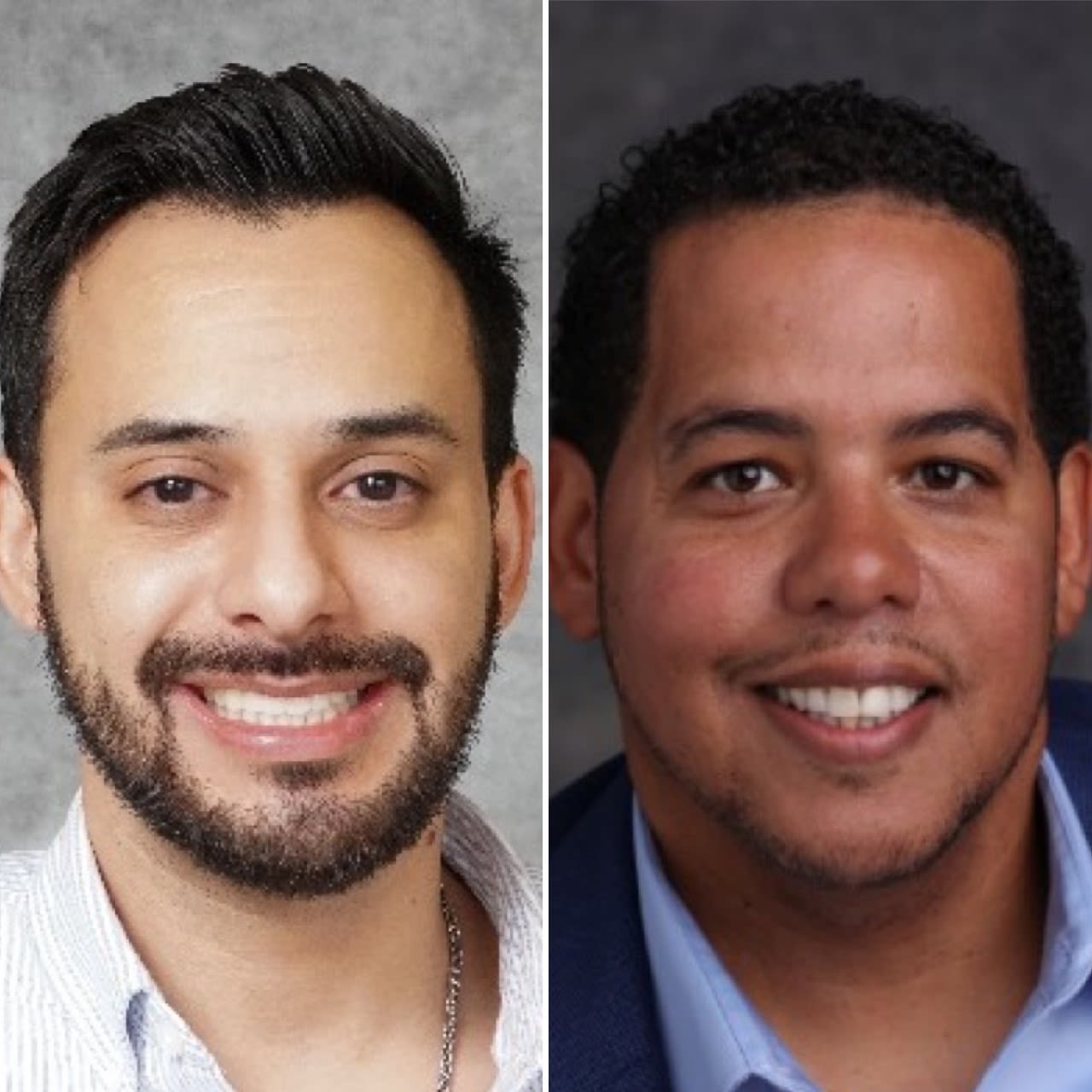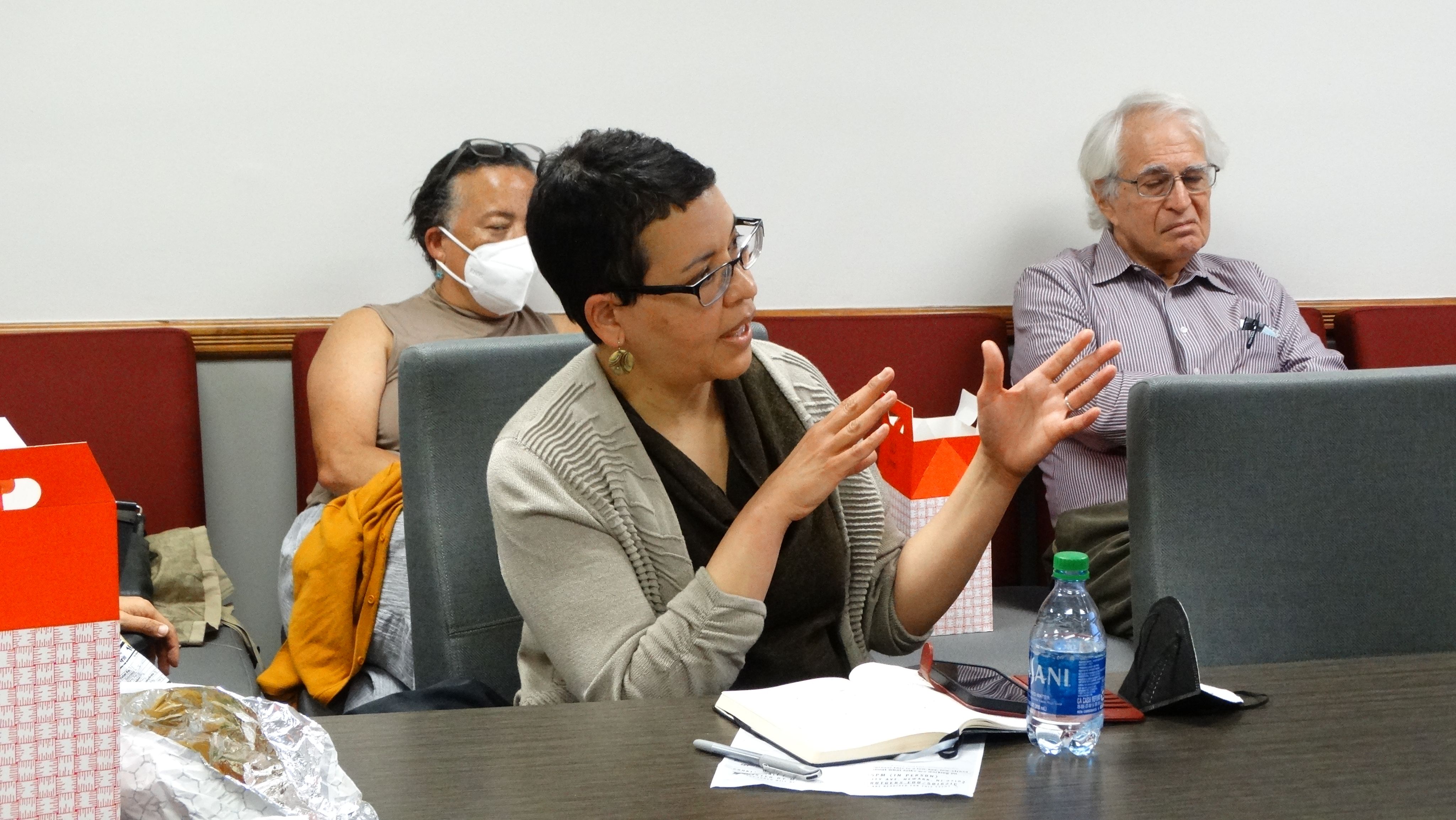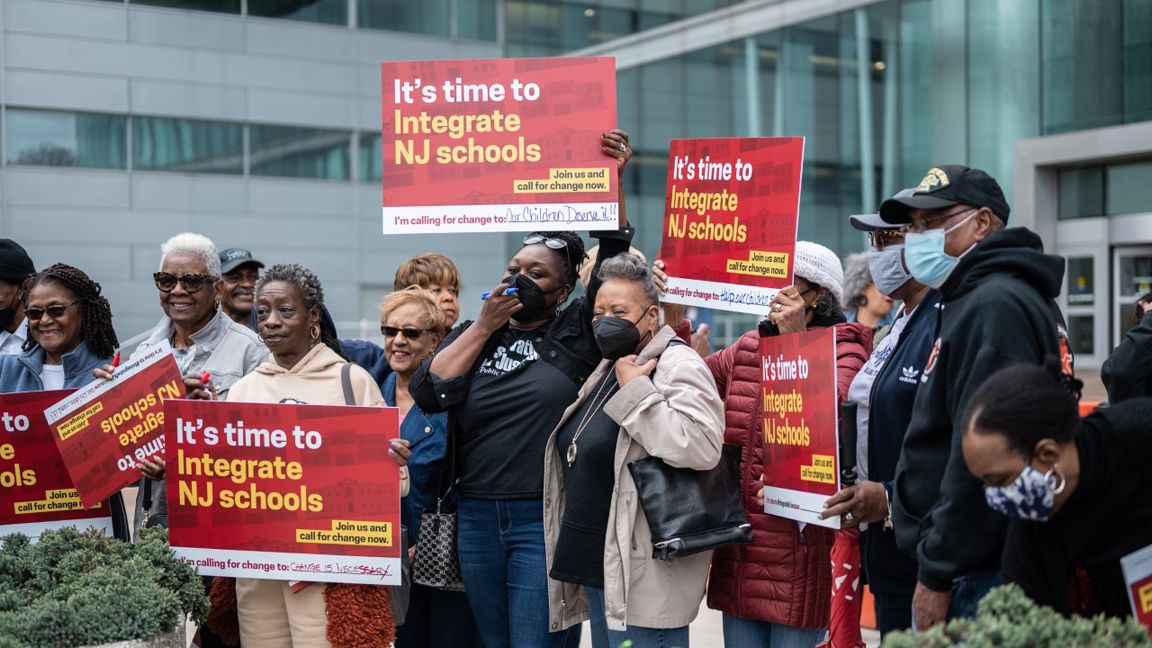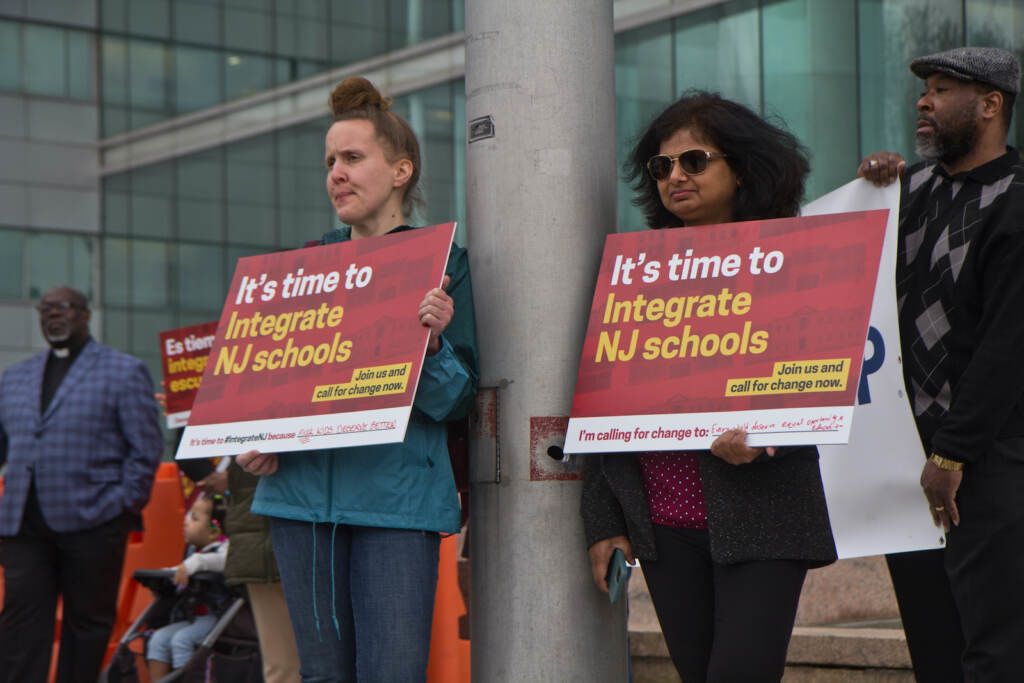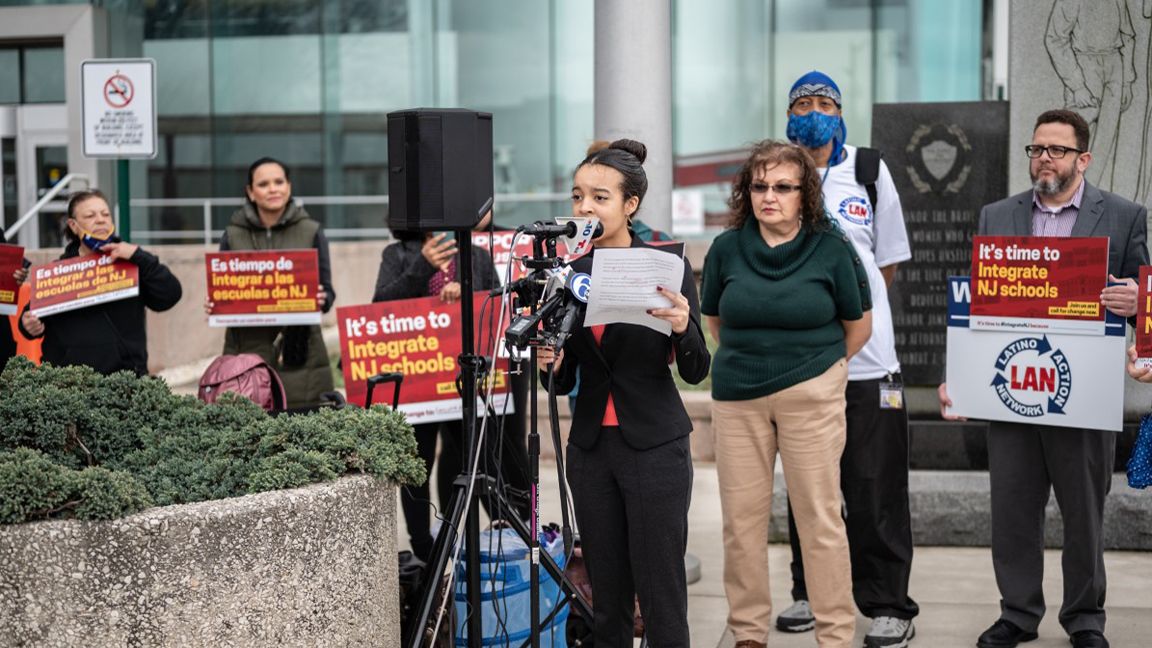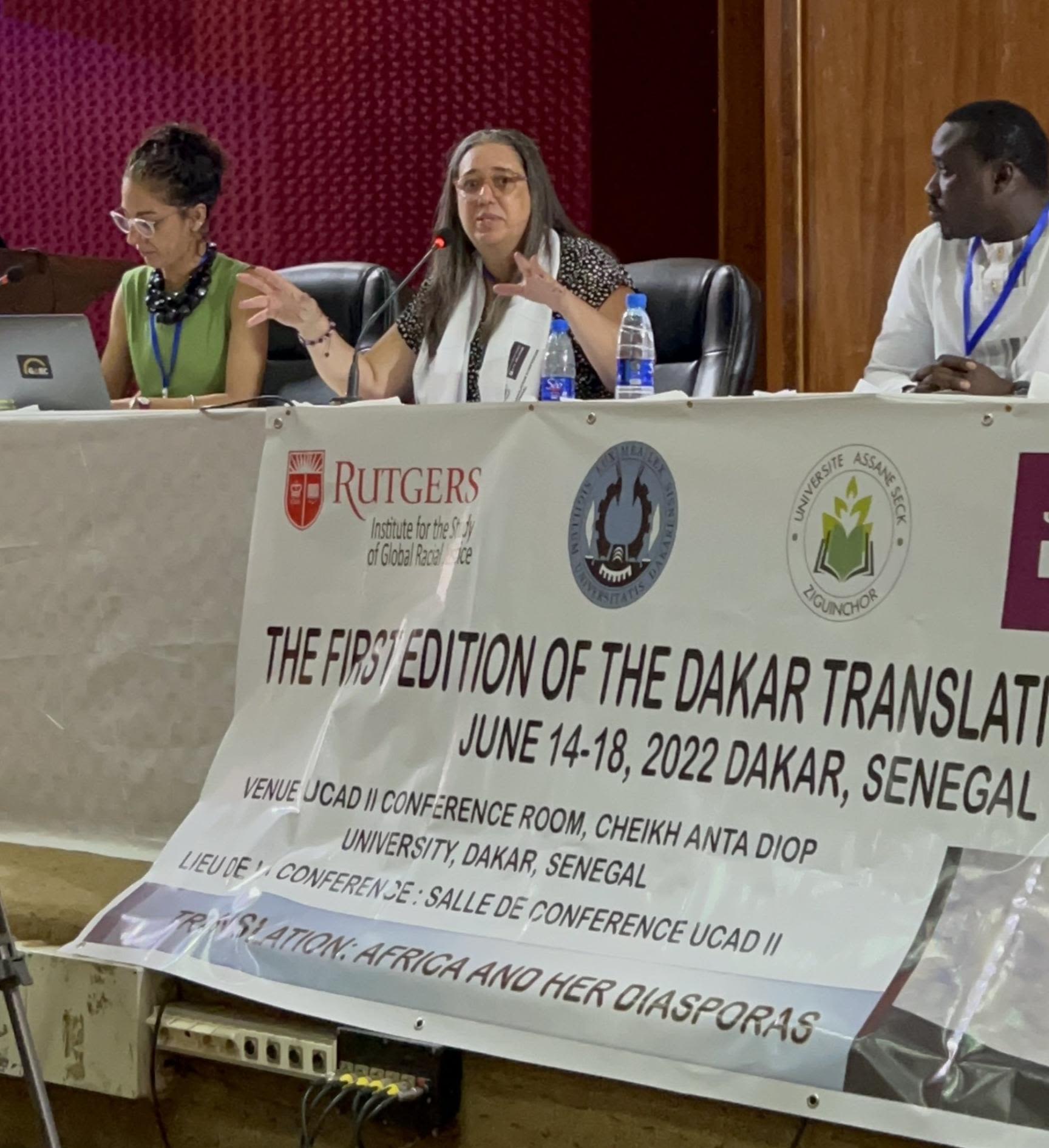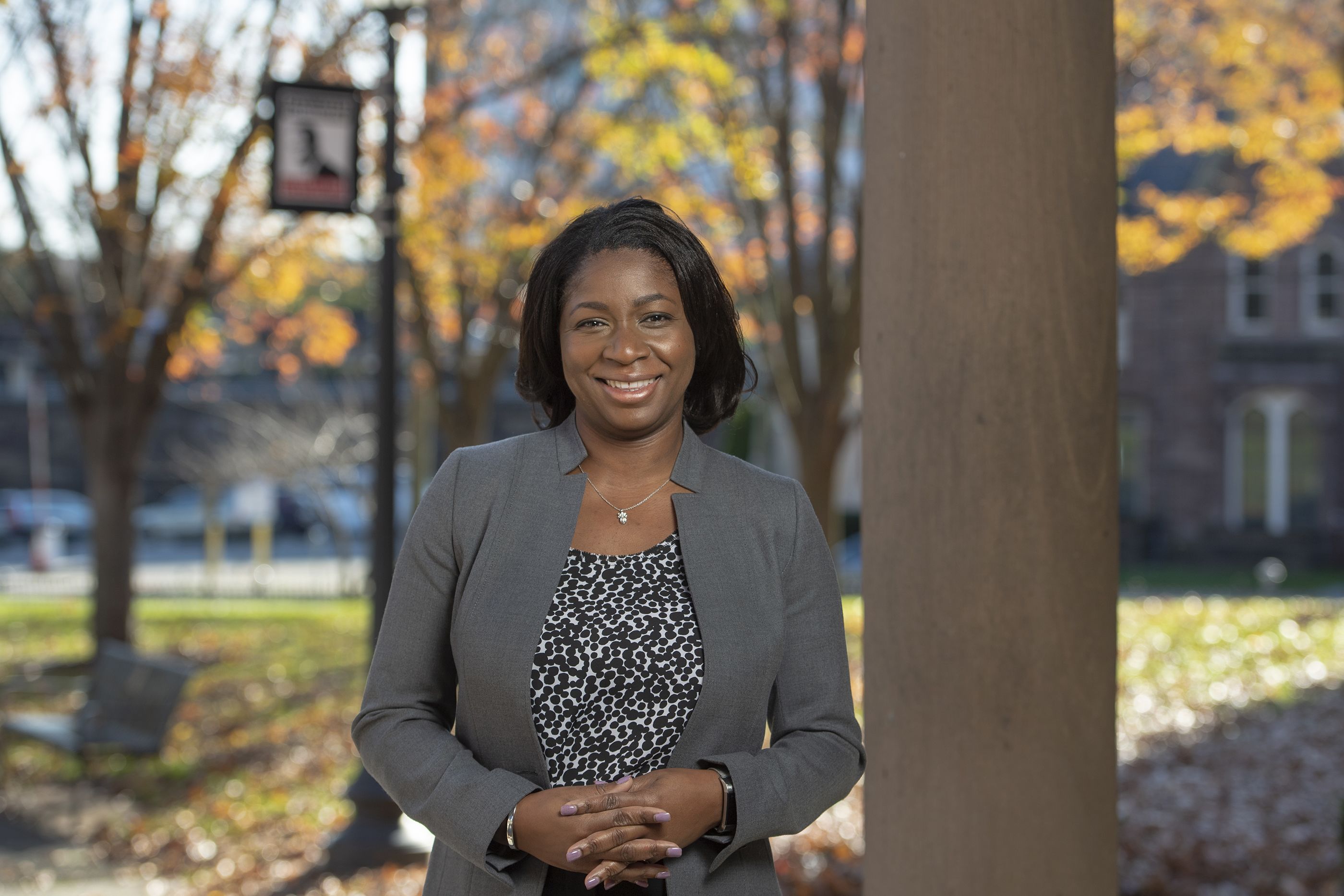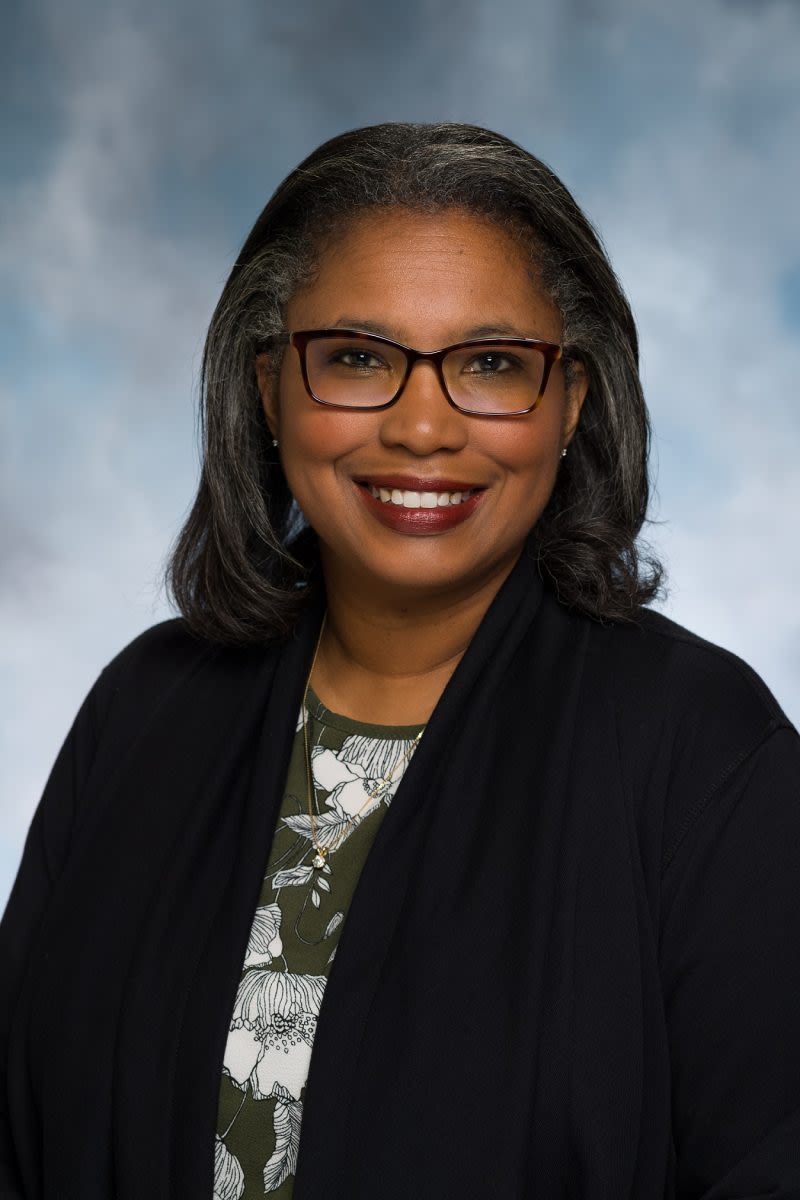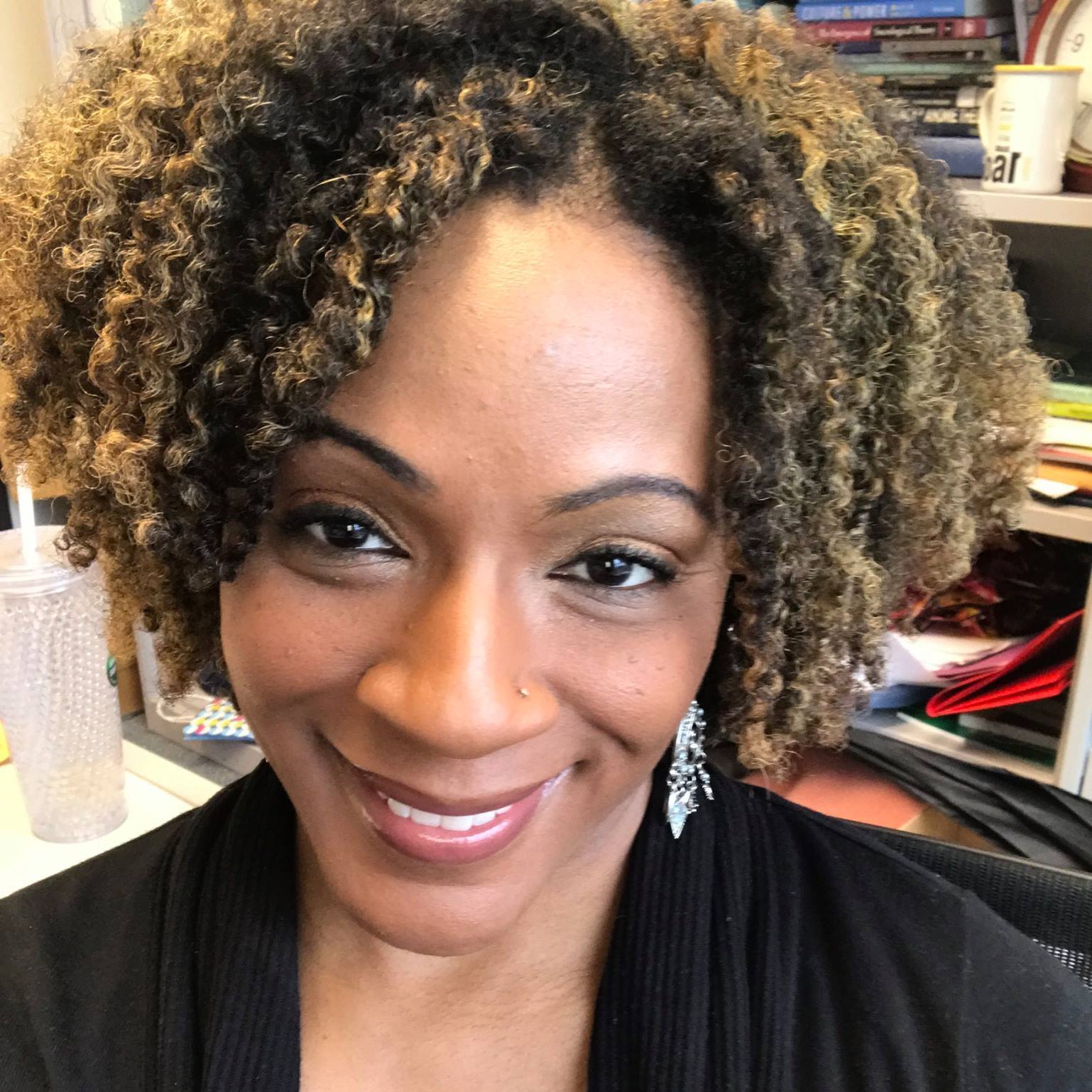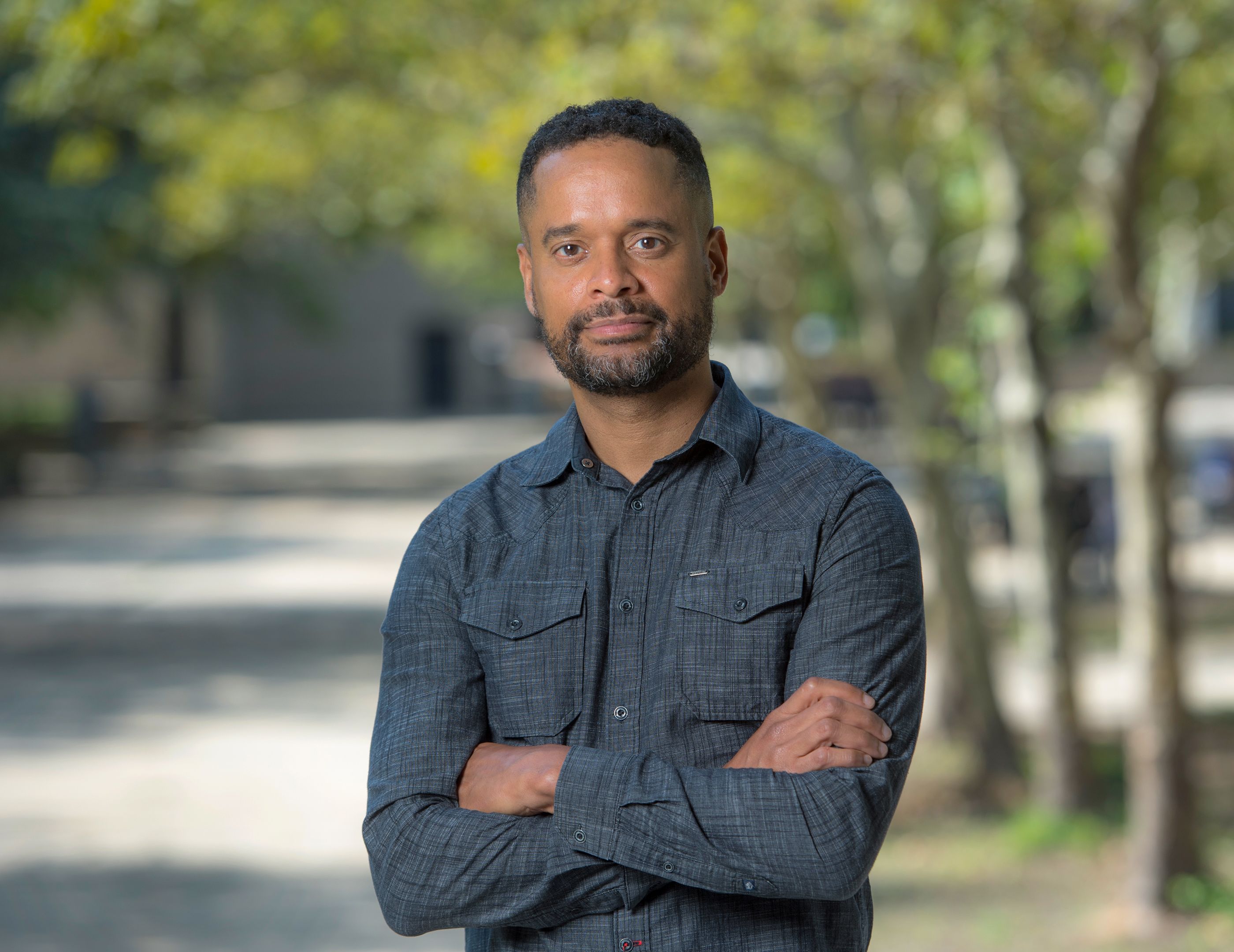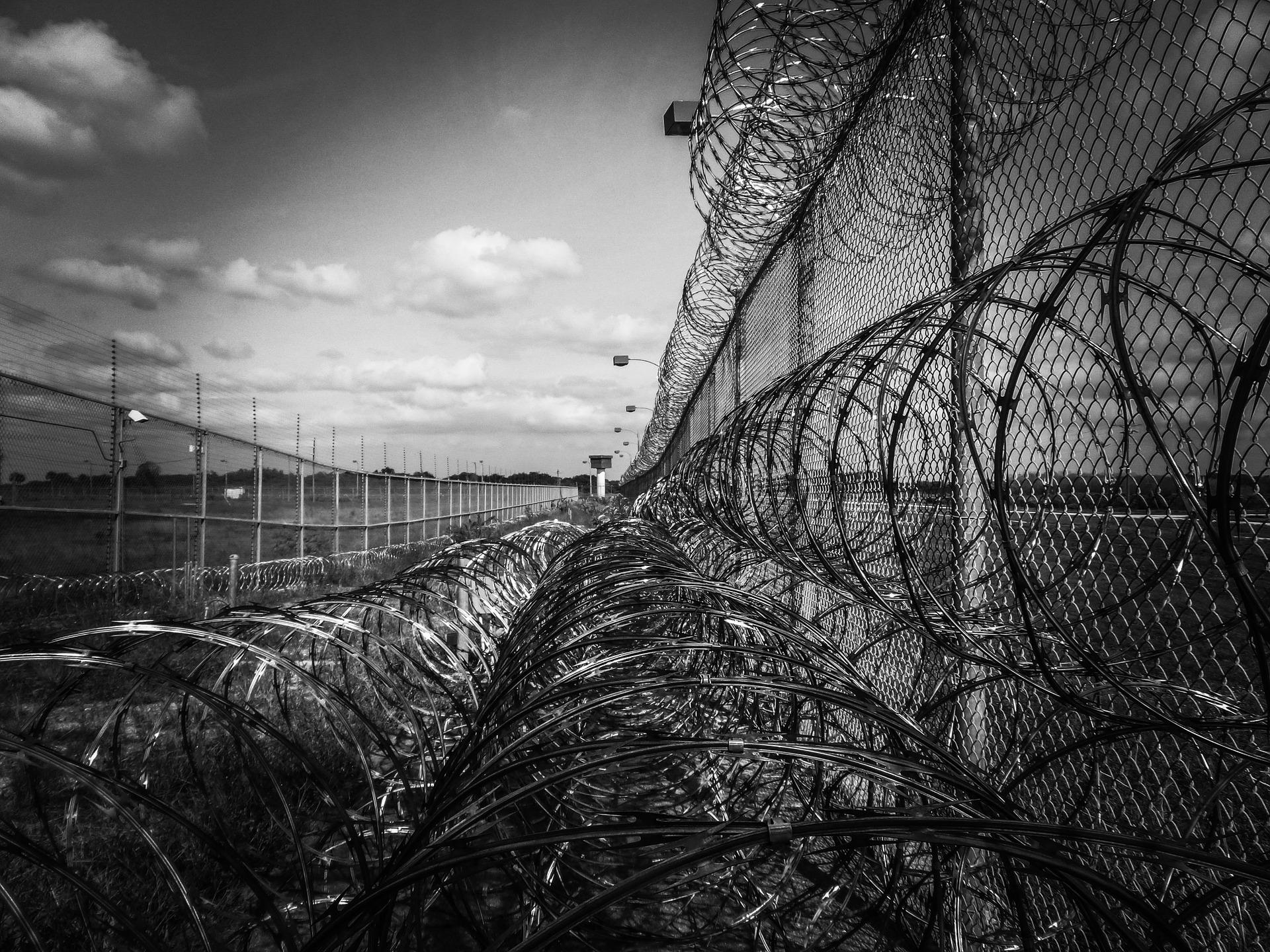Rutgers Institute for the Study of Global Racial Justice
Fall 2022 Newsletter
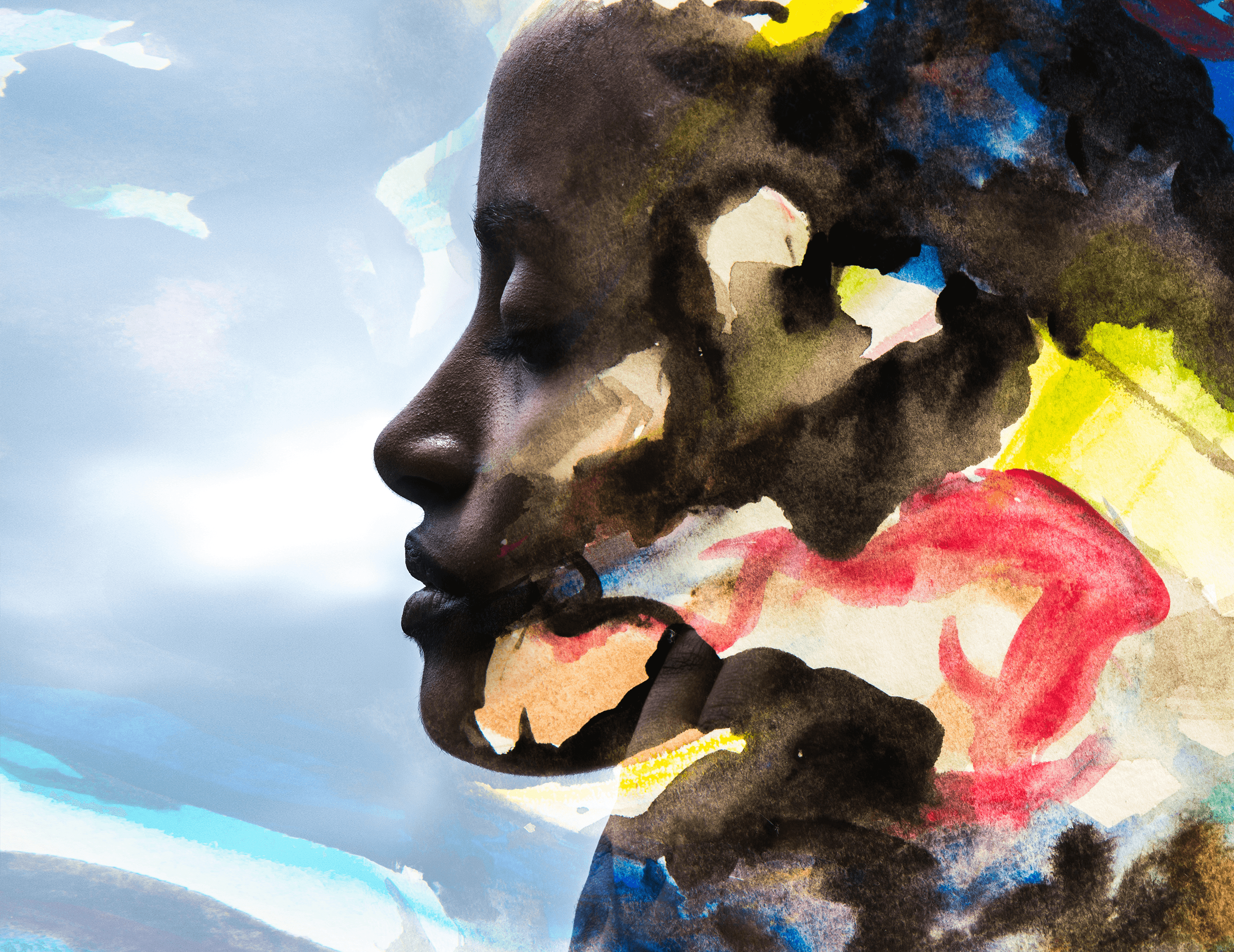
Friends and colleagues, it is a pleasure to write as the Founding and Executive Director of the Institute for the Study of Global Racial Justice, to launch our first newsletter announcing some of the projects, events, activities and people who have begun the journey of the ISGRJ. First and foremost, I thank the Chancellors, Rutgers-Newark Chancellor Nancy Cantor, Rutgers-New Brunswick Chancellor Francine Conway, RBHS Chancellor Brian Strom, and Rutgers-Camden Chancellor Antonio Tillis, for their encouragement and support throughout these first two years of the Institute’s launching. And of course a thank you to President Jonathan Holloway, whose arrival and inauguration as Rutgers’ 21st President made our grant from the Mellon Foundation possible.
The Institute for the Study of Global Racial Justice, or as we say in shorthand, the ISGRJ, was founded in October of 2020 by a $15 million grant from the Mellon Foundation. To put it most directly, our goal is to coordinate and help amplify research in the field of global racial justice at Rutgers. With branches based on the New Brunswick, Newark, and Camden campuses, spanning the breadth of a university with over 70,000 students and over 25,000 faculty, the Institute aims also to contribute to the diversification of the Rutgers faculty -- with postdoctoral and faculty fellowship programs focused on mentorship and professional development, and with the goal of helping to make Rutgers a welcoming place for scholars who are committed to the study of race and related systems of inequity.
When I sat down (usually in front of a zoom screen) and began getting to know the exciting group of scholars who agreed to join me in leading this journey—the Directors of each of the Campus branches about whom I’ll have more to say in a bit-- our ambitions were large. We wanted to provide a space to gather together the already rich array of scholars from multiple humanistic disciplines across Rutgers—from law to language, from philosophy to art, from history to gender studies, from sociology to health—and find ways to showcase their work.

We conceived of the Institute less as one monolithic place, and more as an intellectual network and corridor, connecting our activities across Rutgers, and across New Jersey.
We wanted to display Rutgers’ scholarly status as a whole greater than the sum of its parts: that we could pull scholars doing research on race together from across all of the campuses, that we could envision and actualize a vibrant intellectual corridor which would advance their research, increase its public relevance and impact, and allow us all to teach, and learn from communities beyond the academy, working collaboratively towards the vision of a more just and equitable world.
It may sound idealistic, but I would prefer to say it is based on the blend of principles and imagination required to get important and meaningful work done.
We spent the 2020 to 2021 academic year building the cross-campus infrastructure of the Institute.
The Institute made its public debut at Rutgers-Newark in September of 2021 under the leadership of our Inaugural Newark Director, Elise Boddie – Henry Rutgers Professor of Law at Rutgers Law School and a Judge Robert L. Carter Scholar, whose scholarship explores the regulation of race in law and policy that perpetuate racial inequality. Elise Boddie led a 2-hour virtual launch, celebrating and showcasing the breadth and depth of transformational racial justice work occurring at Rutgers-Newark—both locally and globally. The launch attracted a wide and far-reaching web audience of over 250 live viewers, and served as the first, distinctive platform upon which the transformative work within the Rutgers-Newark campus and its city and community was showcased in one single event.
A large number of these programs bring to fruition Chancellor Nancy Cantor’s vision of Rutgers-Newark, as a publicly engaged anchor institution not just in Newark but of Newark. Such programs include: NJStep, focused on rewriting the narrative of incarcerated men; The Honors Living Learning Community: a bold, comprehensive and imaginative initiative that activates young people in Newark to become change-agents; And Newest Americans, which focuses on the cultural dimensions of migration from the perspective of the most diverse student body and campus in the United States.
We're enormously proud and honored to announce that Director Boddie, a nationally recognized scholar on dismantling systemic racism, has been appointed Principal Deputy Assistant Attorney General, the second highest leadership position within the Civil Rights Division at the U.S. Department of Justice. She departed Rutgers at the end of summer 2022 and has joined the University of Michigan Law School faculty . We celebrate her accomplishment and wish her all the best, and welcome enthusiastically the next Director of ISGRJ-Newark, Mayte Green-Mercado, who is an Associate Professor of History, Director of the Middle Eastern and Islamic Studies Minor in the History Department, and Co-Director of the Mediterranean Displacements Project. Her courses deal with questions of religion, politics, identity, and race and ethnicity in the medieval and early modern periods.
Mayte Green-Mercado
Mayte Green-Mercado
For Co-Directors Gregory Pardlo and Patrick Rosal, both prestigious, award-winning poets and writers at Rutgers-Camden, the priority for ISGRJ-Camden was to reinvigorate our sense of the university as a community of care, as we all continue to endure the COVID-19 global pandemic. Together and in partnership with The Rutgers-Camden Writers House they curated the “Occasions for Gathering” Series, with a focus on creative expression and opportunities for discussion, group writing, reading, collaboration, and art making. In the “Writing Our Communities” Series spearheaded by Greg Pardlo, participants and speakers pondered together such questions as: How does a writer create authentic partnerships that center community? And how can writing with a community effect social change?
In April, Pat Rosal hosted 2017-2019 US Poet Laureate and Pulitzer Prize-winning poet Tracy K. Smith as the marquee closing event in the Occasions for Gathering series.
Writers in Camden: Patrick Rosal and Tracy K. Smith
Writers in Camden: Patrick Rosal and Tracy K. Smith
April also saw our public launch at ISGRJ-New Brunswick, with an event with two speakers who exemplify the vision of excellence and empathy Chancellor-Provost Francine Conway has articulated as important to her leadership.
Erica Armstrong Dunbar, the New Brunswick Campus Director of ISGRJ and the Charles and Mary Beard Distinguished Professor of History, hosted our first On the Soundstage Speaker Series, a conversation with Nikole Hannah-Jones entitled "To Turn the Light of Truth Upon Them: Black Women, Justice, and the Power of the Pen." The talk sold out within hours of the registration link going live, and we were thrilled and honored to be at capacity for our first in-person, inaugural event at Rutgers-New Brunswick in front of an audience of Rutgers University leadership, faculty, staff, students and the broader public.
Nikole Hannah-Jones and Erica Armstrong Dunbar at the ISGRJ-New Brunswick Inaugural Event on April 5, 2022
Nikole Hannah-Jones and Erica Armstrong Dunbar at the ISGRJ-New Brunswick Inaugural Event on April 5, 2022
Erica Armstrong Dunbar also serves as the National Director of the Association of Black Women Historians. Her publications, teaching, and documentary appearances, have placed her among a small number of African American women scholars who study Black women’s history up to and beyond the Civil War. Dunbar has built a name for herself, and for black women's history more broadly, both inside and outside of the academy.
Together with Associate Director and Cross-Campus Director of Undergraduate Intellectual Life, Carlos Decena, an interdisciplinary scholar of immigration and queer studies, ISGRJ-New Brunswick supports a variety of research groups and public engagement projects ranging from long-term research examining racist social policy across centuries, to highly-focused seminars for faculty and postdoctoral fellows, to performances and exhibits featuring the works of influential and emerging Black artists. As Cross-Campus Director of Undergraduate Intellectual Life, Carlos launched the Office of Undergraduate Intellectual Life, which will be spearheading mentorship programs and pedagogical initiatives to support student arts, activism, scholarship and leadership in diversity, equity, inclusion and justice across the university.
More Signature Programs
and Initiatives
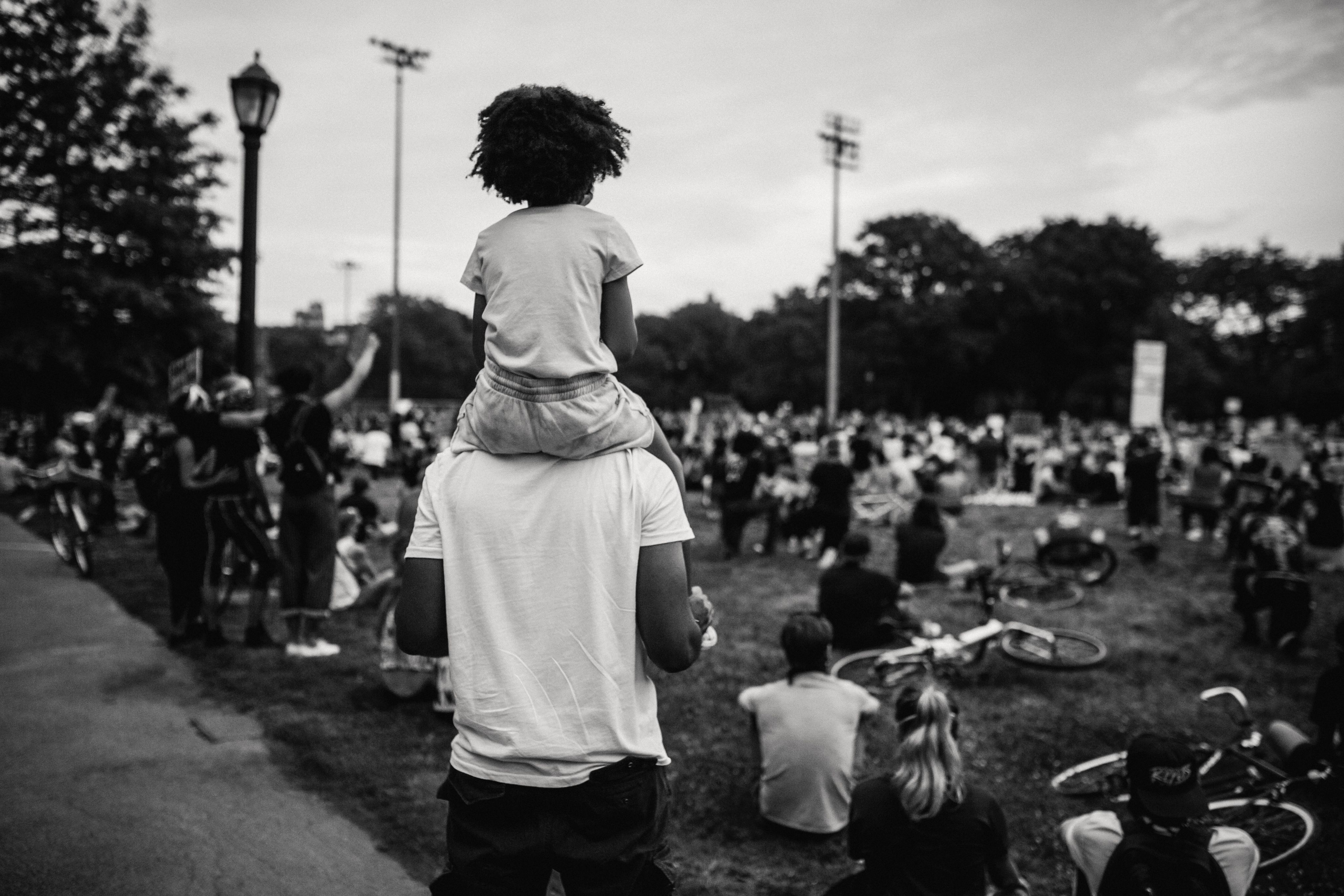
POETS AND SCHOLARS SUMMER WRITING RETREAT
Held in the summers of 2021 and 2022, the Poets and Scholars Summer Writing Retreat stands as ISGRJ’s first, distinctive, signature program, interrogating not just which stories we tell and who gets to tell them, but also, how we tell those stories, down to their finest nuances. This radical experiment in reimagining the traditional writing workshop invites writers of all disciplines, genres, and backgrounds who are committed to anti-racist writing practices to apply.
Intent on creating an open forum of mutual accountability, the retreat features 10 days of presentations and talk-backs, writing worktables, and an opportunity for auditors also to learn from the experience, furthering the ISGRJ mission to create spaces for scholars and creative thinkers to be in conversation, both as an aspect of their work, and also for the mutual exchange of knowledge within and throughout the university and its surrounding communities.
To help with that project, in its first two years the Retreat has been taught by ISGRJ-Camden Co-Director Gregory Pardlo, Dee Matthews, Samiya Bashir, and Rutgers-Newark Assistant Professor in English/Creative Writing and ISGRJ '21-'22 Early Career Faculty Fellow Naomi Jackson, and has featured such key speakers as historian Deirdre Cooper Owens, New York Times Magazine writer Linda Villarosa, and educator and author Felicia Rose Chavez.
Dr. Deirdre Cooper Owens
Dr. Deirdre Cooper Owens
Airea (Dee) Matthews, Michelle Stephens, Deirdre Cooper Owens, Gregory Pardlo and Patrick Rosal
Airea (Dee) Matthews, Michelle Stephens, Deirdre Cooper Owens, Gregory Pardlo and Patrick Rosal
Linda Villarosa and Samiya Bashir
Linda Villarosa and Samiya Bashir
Airea (Dee) Matthews, Samiya Bashir, Linda Villarosa and Gregory Pardlo
Airea (Dee) Matthews, Samiya Bashir, Linda Villarosa and Gregory Pardlo
Felicia Rose Chavez
Felicia Rose Chavez
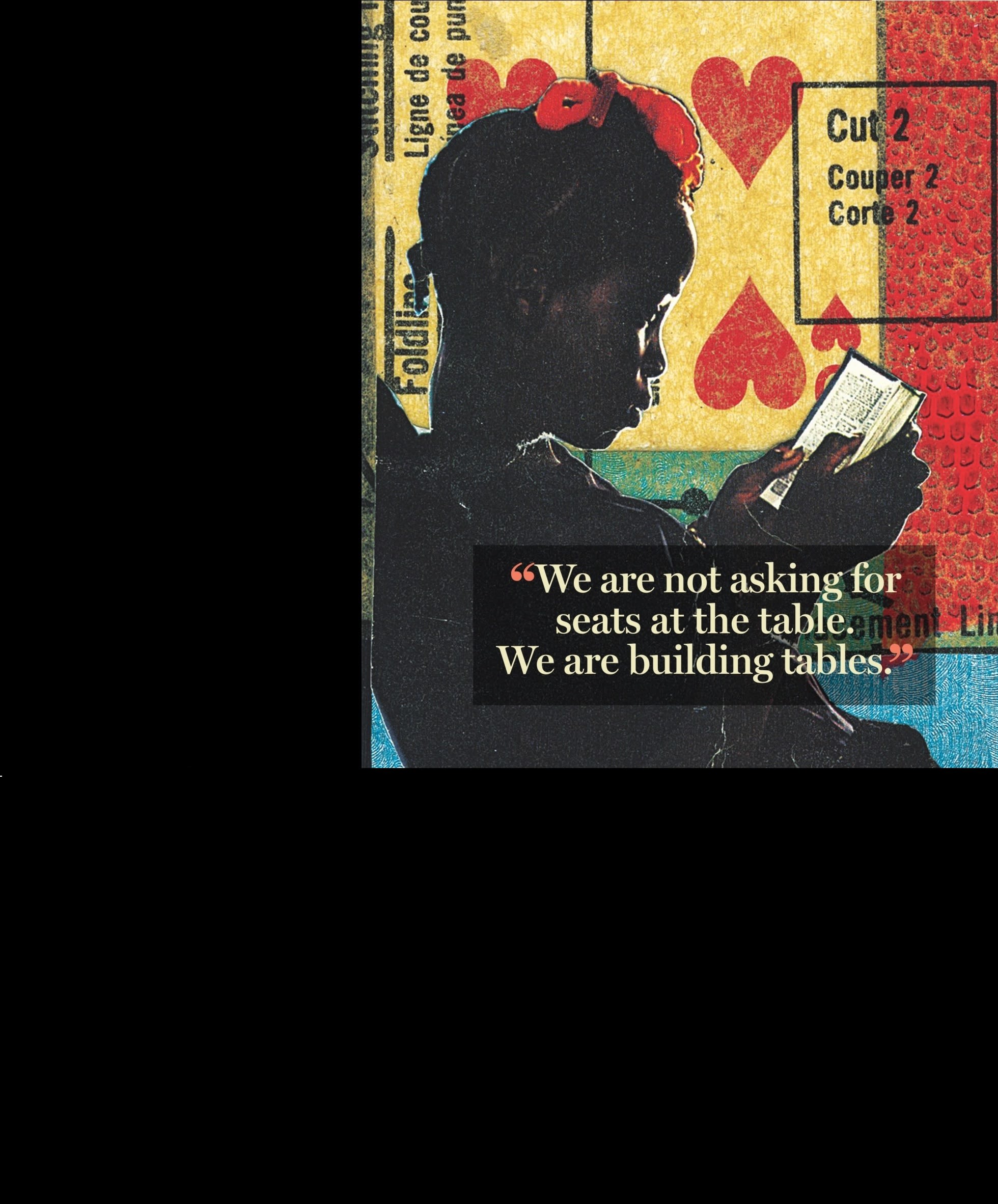
In the spring of 2021 ISGRJ-New Brunswick Director Erica Armstrong Dunbar launched the Scarlet and Black Research Center, an outgrowth of the Scarlet and Black Research Project led by historians Deborah Gray White and Marissa Fuentes, which began as an examination of the historical connections between slavery and the university.
The center now serves as an intellectual hub, bringing together faculty, postdoctoral fellows, graduate, and undergraduate students in faculty seminars, community lectures, and the work-shopping of humanities-based projects. The center's Scarlet and Black Digital Archive documents Black history in New Jersey and fosters collaboration among digital humanities practitioners. Currently, the center’s digital archiving work is being supported by a Michigan State University grant awarded in 2021 from the Mellon project, titled "On These Grounds: Slavery and the University."
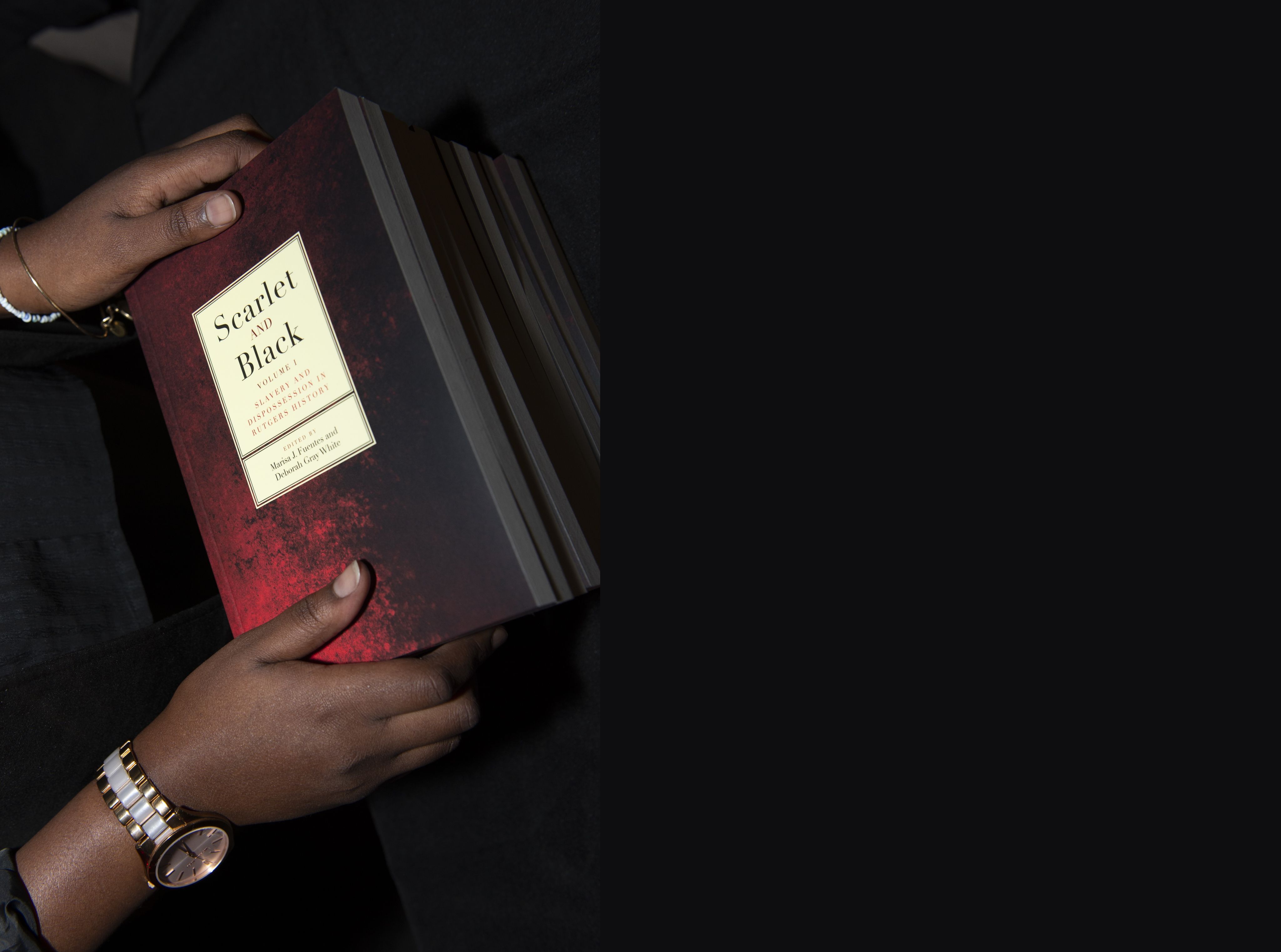
The Quilting Water Undergraduate Arts Prize
ISGRJ at Rutgers-Camden, in conjunction with the Office of Undergraduate Intellectual life, launched the inaugural, university-wide Quilting Water Undergraduate Prize early this year.
The six winners of the Quilting Water Undergraduate Prize were selected from the three Rutgers University campuses in April 2022. They will receive $1,000 in cash and will conduct Quilting Water interviews, contributing to a growing collection of stories about water from around the world. The students will also have two mentorship sessions with an artist of national reputation as they make art in a genre of their choosing based on the Quilting Water archive.
Quilting Water has gathered interviews about water from South Africa, Senegal, Cape Verde, Japan, Puerto Rico, Belgium. the Philippines, the Atayal people of Taiwan, as well as right here in New Jersey. The content of these water stories will be stored and made available to local Black artists who will craft quilts in dialogue with this global archive. Those artists will be led by Camden resident and quilting artist Renata Merrill.
A Quilt by Renata Merrill, Lead Artist for Quilting Water
A Quilt by Renata Merrill, Lead Artist for Quilting Water
Conversation & Connections at ISGRJ-Newark
"Conversation & Connections" was introduced this spring as a low-key, low-stress lunch talk series for Rutgers-Newark Faculty, to come together, and share and discuss their works in progress in an effort to further expand and build faculty dialogue, collaboration and community at Rutgers-Newark.
The series consisted of the following talks: “Revising the Language of #OwnVoices: Racial/Ethnic Authenticity, Controlling Images, and Gang Life in American Literature” with Frank Garcia, Assistant Professor of American Literature and English on April 14 and “Developing Scholars: Race, Politics, and the Pursuit of Higher Education” with Domingo Morel, Assistant Professor of Political Science on May 11.
Professor Domingo Morel presents “Developing Scholars: Race, Politics, and the Pursuit of Higher Education” at "Conversation & Connections" on May 11, 2022
Professor Domingo Morel presents “Developing Scholars: Race, Politics, and the Pursuit of Higher Education” at "Conversation & Connections" on May 11, 2022
Inaugural ISGRJ-Newark Director Elise Boddie at "Conversation & Connections" on May 11, 2022
Inaugural ISGRJ-Newark Director Elise Boddie at "Conversation & Connections" on May 11, 2022
The Inclusion Project
Educational Equity
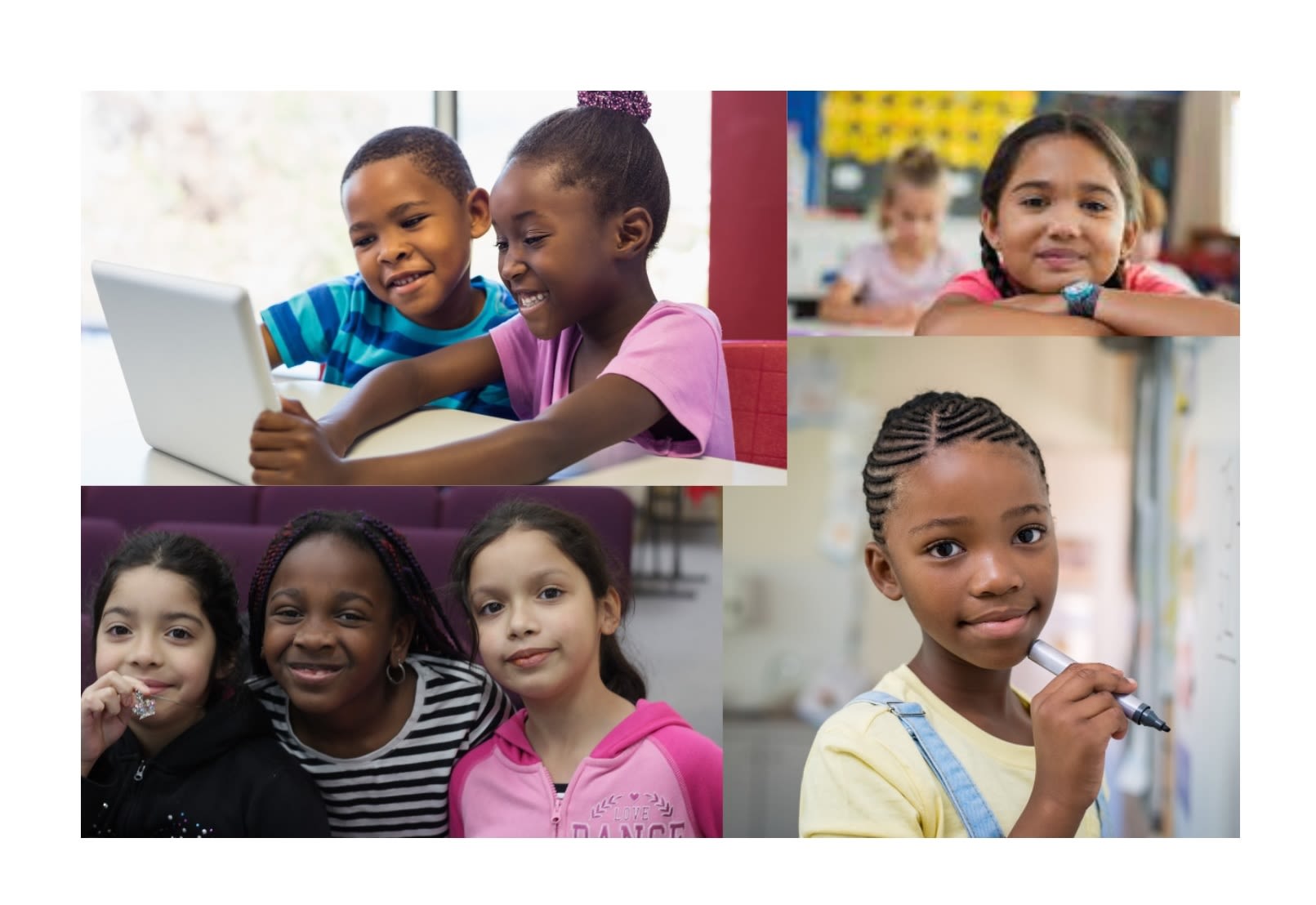
The Inclusion Project (TIP), founded in 2017 by the Institute's Inaugural Rutgers–Newark director Elise Boddie, seeks to advance a vision of racial justice that can be adopted through legislation, public policy, and/or community practice. The project's primary focus is on racial equity and inclusion in K–12 education in New Jersey, with a particular emphasis on advancing opportunity for Black and Latinx students in the state’s severely segregated public schools.
To that end, The Inclusion Project's work at Rutgers-Newark intersects with the case Latino Action Network, et al. v. State of New Jersey, which was filed in New Jersey state court on May 17, 2018 (the 64th anniversary of the landmark U.S. Supreme Court decision Brown v. Board of Education). Latino Action Network claims that segregation by race and poverty in the state’s public schools and charter schools violates New Jersey’s Constitution. TIP’s founder and director, Elise Boddie played a key role in facilitating the case.
On March 30, The Inclusion Project came together with a coalition of NJ youth, faith leaders, and social justice and civil rights organizations for the #BreakTheBarriers Rally, calling on state leaders to end segregation in public schools across the state and finally #IntegrateNJ. Watch the full video of the rally below:
The "Break The Barriers" Rally on March 30, 2022 at The Richard J. Hughes Justice Complex in Trenton, NJ. Credit: NJ Spotlight News
The "Break The Barriers" Rally on March 30, 2022 at The Richard J. Hughes Justice Complex in Trenton, NJ. Credit: NJ Spotlight News
Credit: WHYY
Credit: WHYY
Kasai Sanchez, a junior at Teaneck High School in Bergen County speaks at the "Break The Barriers" Rally on March 30, 2022. Credit: NJ Spotlight News
Kasai Sanchez, a junior at Teaneck High School in Bergen County speaks at the "Break The Barriers" Rally on March 30, 2022. Credit: NJ Spotlight News
The Inclusion Project's programming in 2021-2022 culminated in the virtual statewide conference "Re-Envisioning the Future of Educational Equity in New Jersey."
This conference for educators, community stakeholders, and researchers was held on June 11, 2022 and was the first in a series of meetings intended to produce an educational equity agenda for the state. The issues addressed included disparities in resources and outcomes, funding, discipline, resource allocation, pre-school, disconnected youth, post-secondary outcomes, special education and segregation. The conference reviewed relevant data on equity performance at the state and district level and initiated discussions about paths to better performance.
Watch the conference in its entirety here:
The Dakar Translation Symposium:
Africa and Her Diasporas
Dakar, Senegal
June, 2022
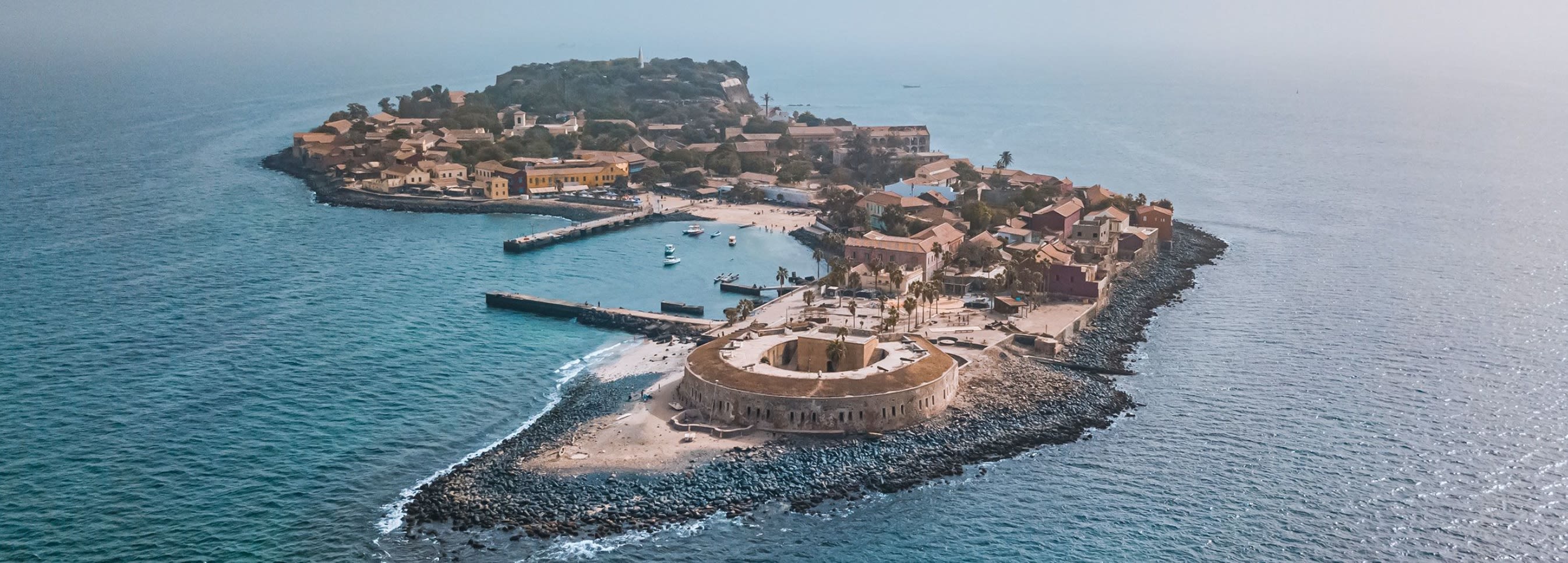
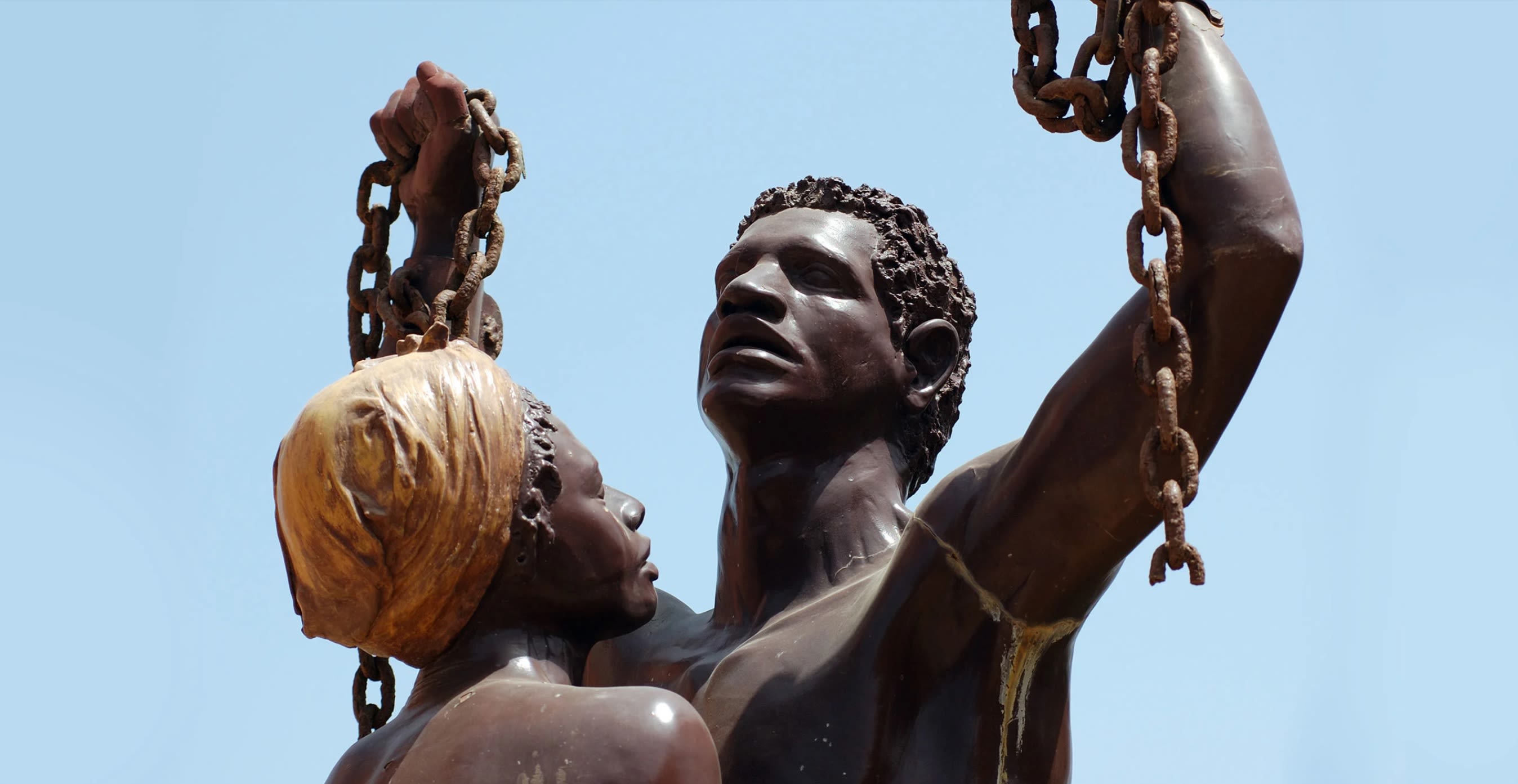
In the hope of fostering a transatlantic dialogue, we launched our first global initiative this year. The Dakar Translation Symposium: Africa and its Diasporas brought together speakers and participants across four continents and four languages in a collaborative effort between Rutgers University, NYU Abu Dhabi, The University of Assane Seck University in Ziguinchor and Cheikh Anta Diop University in Dakar, where the symposium was held from June 14 to June 19, 2022.
Symposium Organizers (L to R): Baba Badji, ISGRJ Postdoctoral Fellow; Saliou Dione, Rutgers Fulbright Scholar and ISGRJ Rutgers-Camden Co-Director Gregory Pardlo
Symposium Organizers (L to R): Baba Badji, ISGRJ Postdoctoral Fellow; Saliou Dione, Rutgers Fulbright Scholar and ISGRJ Rutgers-Camden Co-Director Gregory Pardlo
This symposium was the first multinational, multidisciplinary, multilingual conference focused on the African diaspora. Panels captured the value of connected stories through multiple themes such as reconnecting identities, gender and diversity, nationhood, Black Lives Matter, and more, culminating in a Juneteenth memorial gathering on Gorée Island, the largest slave trading port on the African coast from the 15th to the 19th century.
The Symposium also served to raise awareness and funds for a collaborative Center for Translation Studies, Literature and Writing at Assane Seck University in Ziguinchor, which is in southern Senegal, and located at the crossroads of French, English and Portuguese regions superimposed on half a dozen local languages and their resulting creoles.
The Symposium explored the following themes, and more:
- Counternarratives and Translating History
- 1619 and the Birth of Modernity
- Poetry of the Black Atlantic
- BLM and the Afterlives of Negritude
- Ethnicity, Class, Gender, and Diversity in Africa and the Diasporas
- Creolization and creoleness
- Cultural and Linguistic Continuity and Changes
All of the panels were live-streamed daily on YouTube, reaching a global audience and facilitating unprecedented dialogue within Senegal, and beyond.
ISGRJ Founding and Executive Director Michelle Stephens talks about plans to establish a University Center for Translation in Senegal at the Dakar Translation Symposium.
ISGRJ Founding and Executive Director Michelle Stephens talks about plans to establish a University Center for Translation in Senegal at the Dakar Translation Symposium.
Black Bodies,
Black Health
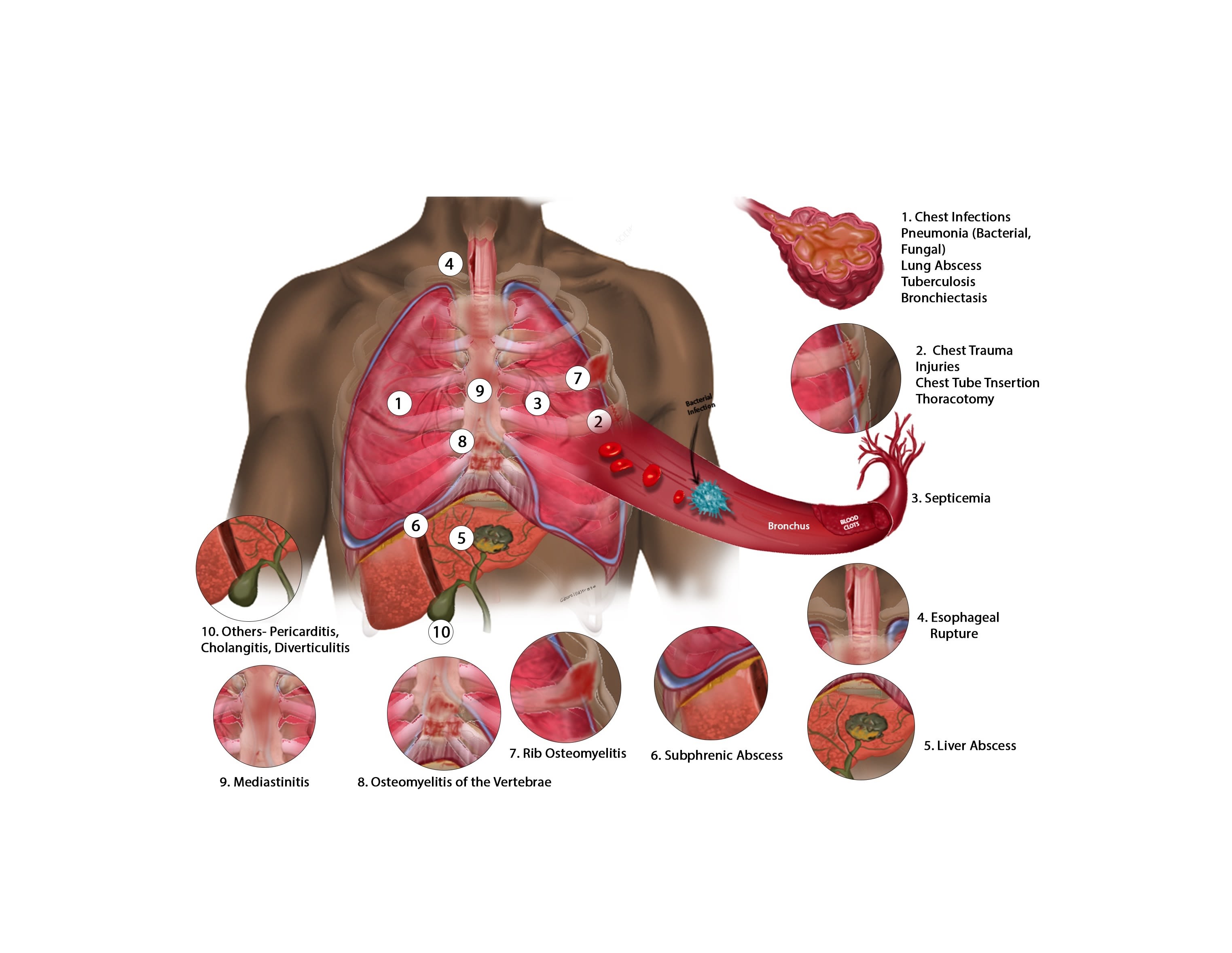
Black Bodies, Black Health is a one-year research project supported by a $725,000 grant from the Robert Wood Johnson Foundation. Through seed grants, workshops, conferences and both scholarly and public writing, Black Bodies, Black Health incentivizes humanists, social scientists, and biomedical researchers to engage in interdisciplinary work to explore and unpack structural racism in service of creating equitable health outcomes.
Black Bodies, Black Health Steering Committee
Building an Inter-Disciplinary Conversation
Led by myself and Anna Branch, Senior Vice President for Equity at Rutgers University, the Steering Committee of Black Bodies, Black Health: Imagining a Just Racial Future focuses on organizing cross-disciplinary discussion groups of experts to wrestle with the question: What would we learn from bringing humanists, social scientists, and biomedical researchers to the table to explore, unpack, and disrupt structural racism in service of creating equitable health outcomes?
With a wide and diverse range of expertise, Steering Committee members helped to frame the seed grant program that incentivizes and organizes Rutgers researchers, and the interdisciplinary workshops and conversations convened to synthesize and develop their specific research projects. Steering Committee members also contributed to the project’s final report identifying the research needed in humanistic and social scientific fields to ameliorate structural racism as a determinant of health and wellbeing.
Steering Committee Members:
- Anna Branch, Black Bodies, Black Health Research Project Lead, Senior Vice President for Equity, and Professor of Sociology at Rutgers-New Brunswick.
- Carlos Decena, Professor, Latino and Caribbean Studies, School of Arts and Sciences New Brunswick; ISGRJ Cross Campus Director for Undergraduate Intellectual Life and Associate Director of ISGRJ-New Brunswick.
- Perry Halkitis, Dean and Professor of Biostatistics and Urban-Global Public Health at the School of Public Health; founder and director of the Center for Health, Identity, Behavior & Prevention Studies (CHIBPS); primary member of the Rutgers Cancer Institute of New Jersey and the Global Health Institute and Professor Emeritus at the College of Global Public Health at New York University.
- Shawna Hudson, Professor and Research Division Chief, Department of Family Medicine and Community Health at the Rutgers Robert Wood Johnson Medical School; Co-Chair, Rutgers Biomedical Health Sciences emerging signature program in Community Health and Health Systems.
- Dawne Mouzon, Associate Professor of Sociology, School of Arts and Sciences at Rutgers-New Brunswick.
- Luis Rivera, Associate Professor of Psychology, School of Arts and Sciences at Rutgers-Newark and Director of the Rutgers Implicit Social Cognition (RISC) Lab.
Anna Branch
Anna Branch
Carlos Decena
Carlos Decena
Perry Halkitis
Perry Halkitis
Shawna Hudson
Shawna Hudson
Dawne Mouzon
Dawne Mouzon
Luis Rivera
Luis Rivera

Seed Grants
The Black Bodies, Black Health project provided seed grants for spring and summer of 2022 to support a range of multi-disciplinary research projects that focused on forms of physician education; the carceral state; environmental racism; and the physiological impact of racism on black bodies.
Physician Education
Researchers in fields as diverse as applied psychology (Alexandria Bauer, GSAPP NB), history (Johanna Schoen, SAS NB) and medicine (Pamela Brug, RBHS), examined such topics as communication between doctors and black families in neonatal ICUs, the impact of cultural humility among physicians, and the effectivity of technological solutions to uniting like-minded patients and physicians.
The Carceral State
As a crucial contemporary instance of the institutionalization of systemic, structural racism with negative health outcomes, scholars from philosophy (Lauren Lyons, SAS NB), psychology (Lori Hoggard, SAS NB), nursing (Ann Bagchi, RBHS) and social work (Maxine Davis, SSW NB), studied the ethics of carceral justice.
Environmental Racism
Studies of the impact of environmental racism on health outcomes by researchers from the environmental sciences (Anita Bakshi, SEBS NB), nursing (Wanda Williams and Mei Fu, SON CMD) and history (Rachel Devlin, SAS NB) focused on environmental justice and indigeneity, the impact of place-based versus person-based barriers on rates of breast cancer screenings among black women, and a micro-history of the impact of environmental racism on a southern black community.
Black Bodies
Researchers from applied psychology (Peter Economou, GSAPP NB) and labor relations (Yana Rodgers, SMLR NB) studied racism as a contributor to physiological stress in black athletes and black women in the labor market.
Black Bodies, Black Health | Disrupting Health Disparities: Imagining a Just Racial Future External Expert Conference
August 16-18, 2022
This 3-day conference featured in-depth engagement with scholars in the broad field of race and health and a mix of speakers and group discussions focusing on racial health disparities and achieving health equity. The conference culminated in the Presidential Keynote by sitting Rutgers President Jonathan Holloway titled "Mapping Value: The Material Consequences of Structural Racism." Click here to watch.
Click here for more about the conference.
Watch the Conference On-Demand below.
A heartfelt thank you to all of the faculty leaders and staff on the ISGRJ team for helping to bring together this rich programming and extraordinary collection of scholars for our inaugural year. As we enter the 2022-2023 academic year, ISGRJ is getting ready for another welcome expansion. In 2021-2022 we welcomed our first cohort of postdoctoral and Scarlet & Black fellows, and in 2022-2023 we will double that number with a new group of exciting scholars from across the country, interacting with each other and colleagues in departments across the Rutgers landscape . We also enthusiastically and proudly welcome our first 2022-2023 cohort of Named Term Chairs to support our work in the areas of social justice and racial inequity.
Last year also saw the dynamic energy and collegiality of a group of Rutgers Early Career Faculty Fellows who, with the support of the Institute, found a bit more time to focus on their own research and writing, offer each other support, and receive both scholarly and professional guidance from senior scholars both at Rutgers and throughout the academy.
This year we welcome a second dynamic and interdisciplinary group of early career faculty fellows from schools across the chancellor-led units, from the arts and sciences faculty on all 3 Camden, New Brunswick and Newark campuses, but also from such schools and fields as criminal justice, education, social work, nursing, public policy and management and labor relations.
In the “Understanding Race” series I include as part of the ISGRJ “Race, in Theory” Fellows Humanities seminar, I join with scholars from a variety of fields across Rutgers to create interdisciplinary conversations about humanistic understandings of racial formation.
I feel a real urgency to show that there can be places where thinkers and writers and scholars can also be activists whose values and commitments can do real work in the world in influencing how others think, and what they feel compelled to do, for racial justice. Our most challenging ambition is to provide a platform for showcasing the difference humanistic scholarship can make in addressing some of the most pressing dimensions of racial inequity in our societies globally today.
Our Director of Communications, Tania Bentley, my partner in the thinking, creation, and design of this newsletter, has been instrumental and visionary in strategizing about how to navigate the social media landscape as researchers of the 21st century. Due to her efforts we have already seen signs of our outward facing impact: in gaining a worldwide audience for our Translation Symposium in Dakar, Senegal; in the launch and expansion of our four social media platforms and YouTube channel - where we plan to feature videos of all of our events and signature programs and provide livestreaming of our future large-scale, live events as we merge our expanding in-person activity with our virtual presence - and in working with the team at university communications to create a dynamic and active website that can provide a window into the high levels of research activity in global racial justice occurring in multiple classrooms, intellectual conversations, and published scholarship and research throughout the Rutgers system. I look forward with eagerness to continuing ISGRJ’s journey in the years to come!
Founding and Executive Director, Institute for the Study of Global Racial Justice
